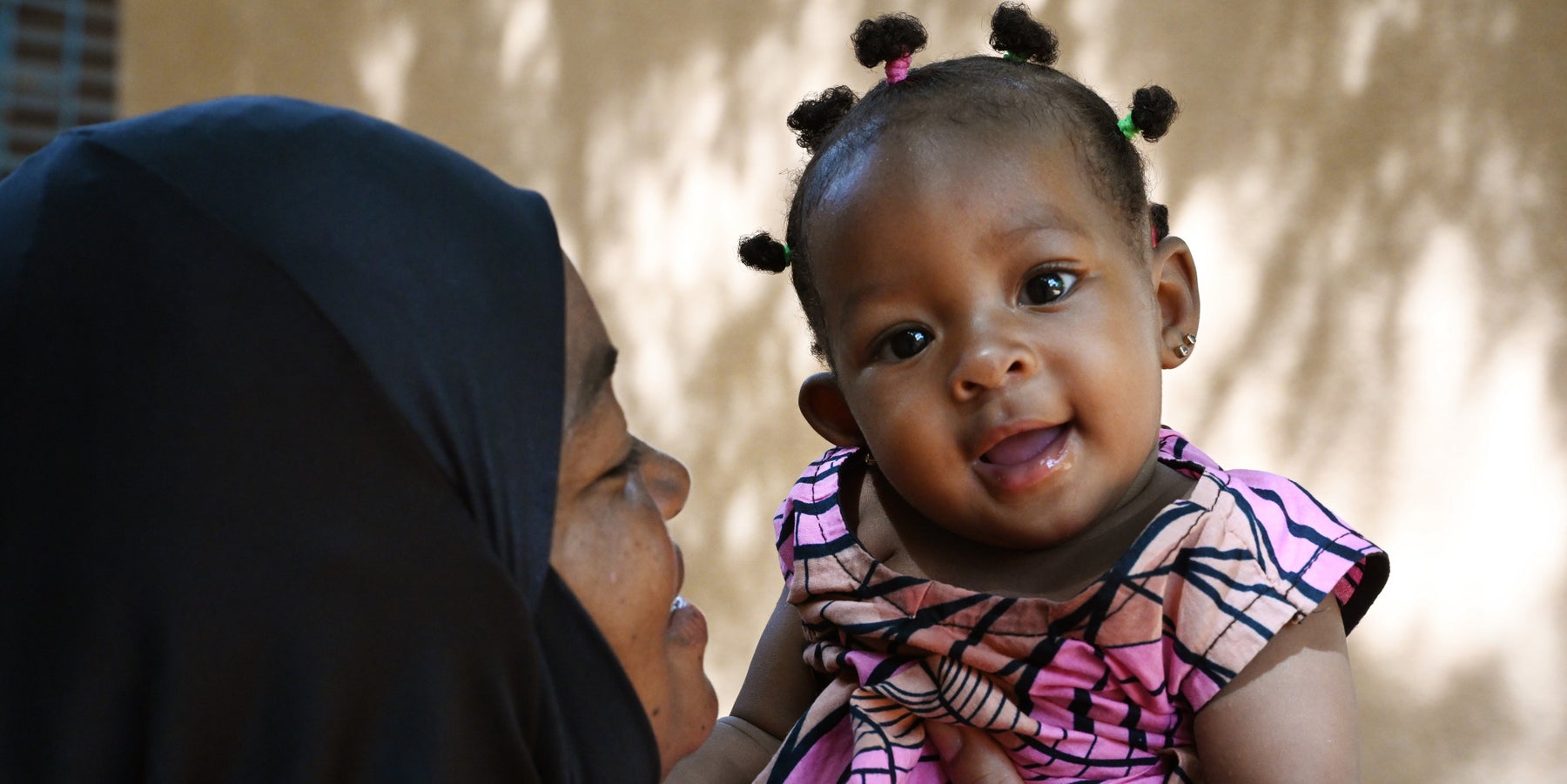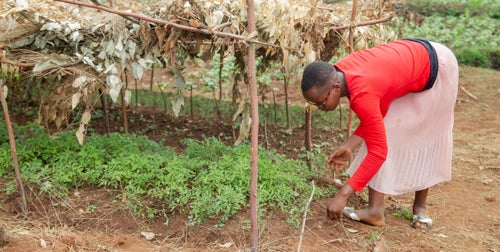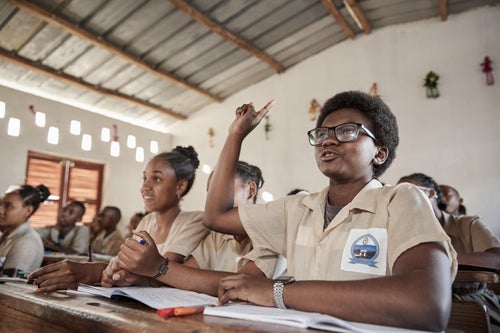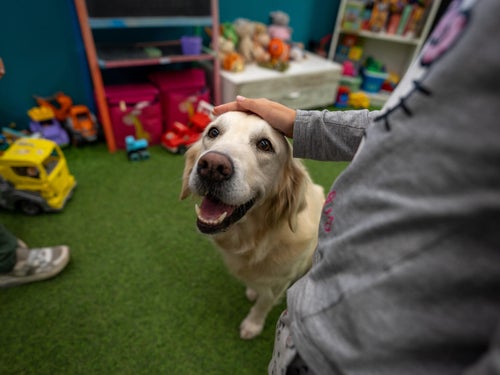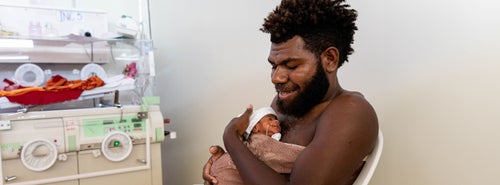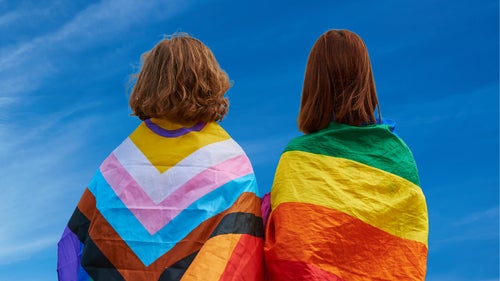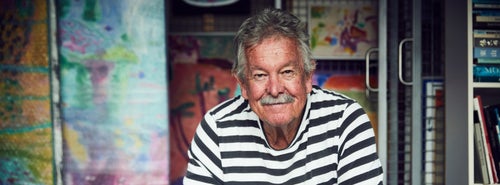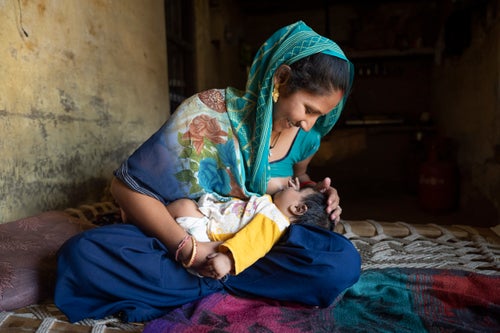Whether they’re walking their children to school or rescuing their newborn from the rubble of an earthquake, these mothers would do anything to keep their children safe, healthy and happy.
Take a look at what it’s like to be a mother around the world.
Siphiwe, South Africa
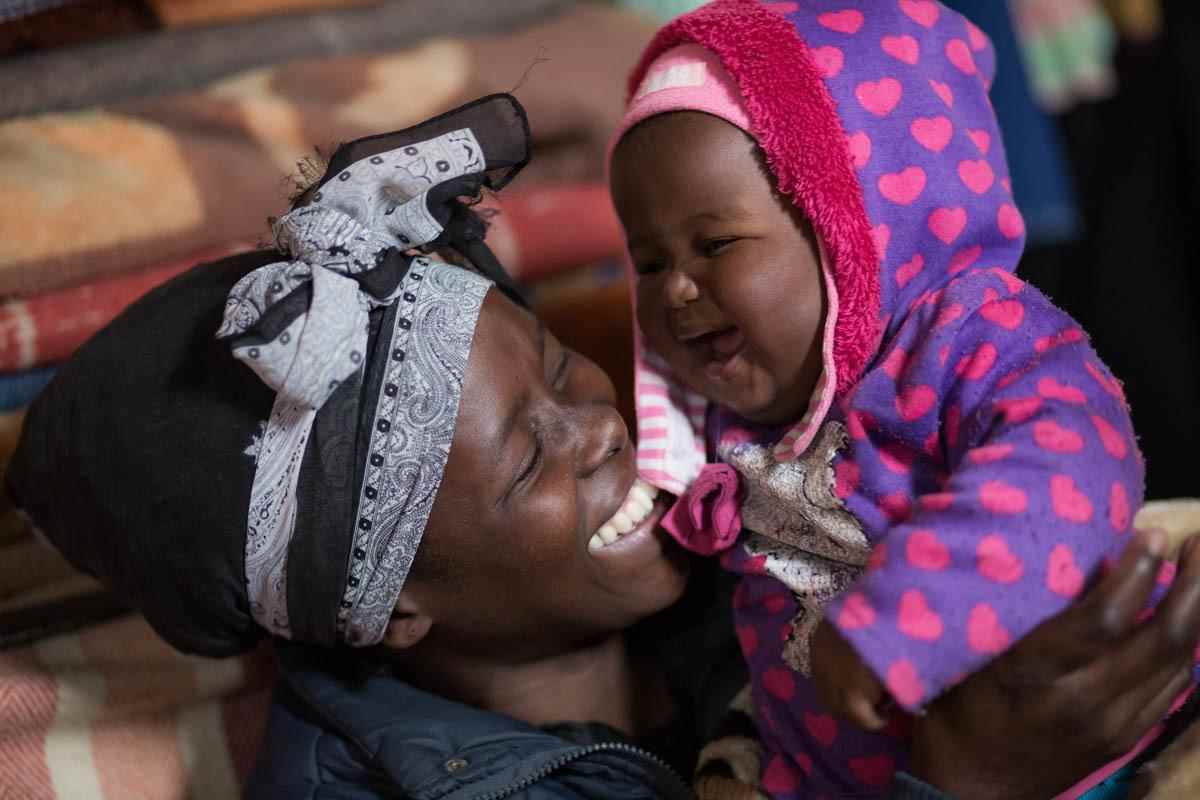
Avalon, Fiji
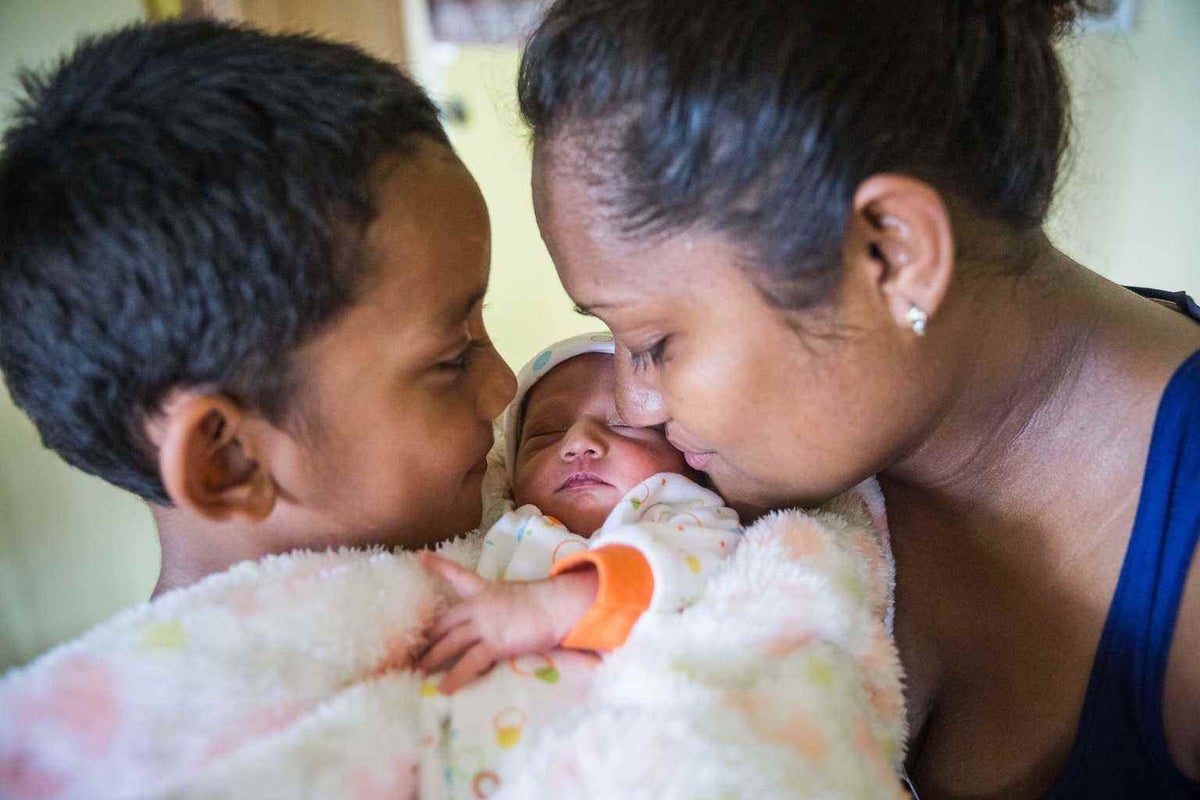
When Cyclone Winston hit Fiji, expecting mother Avalon Buksh was just two weeks shy of her due date. As her family of eight prepared for the strongest storm to ever reach land in the Southern Hemisphere, she asked her husband: “what if I go into labour during the cyclone?”
Sure enough, her twins Gina and Tina arrived as the cyclone’s vicious winds reached Nadi early on Sunday morning. They were born into a country where almost half the population - including 120,000 children - were in dire need of emergency assistance. UNICEF helped provide life-saving supplies like food, clean water, temporary shelters and medical aid. Help us prepare for emergencies with an Inspired Gift of emergency relief supplies.
Maya, Nepal
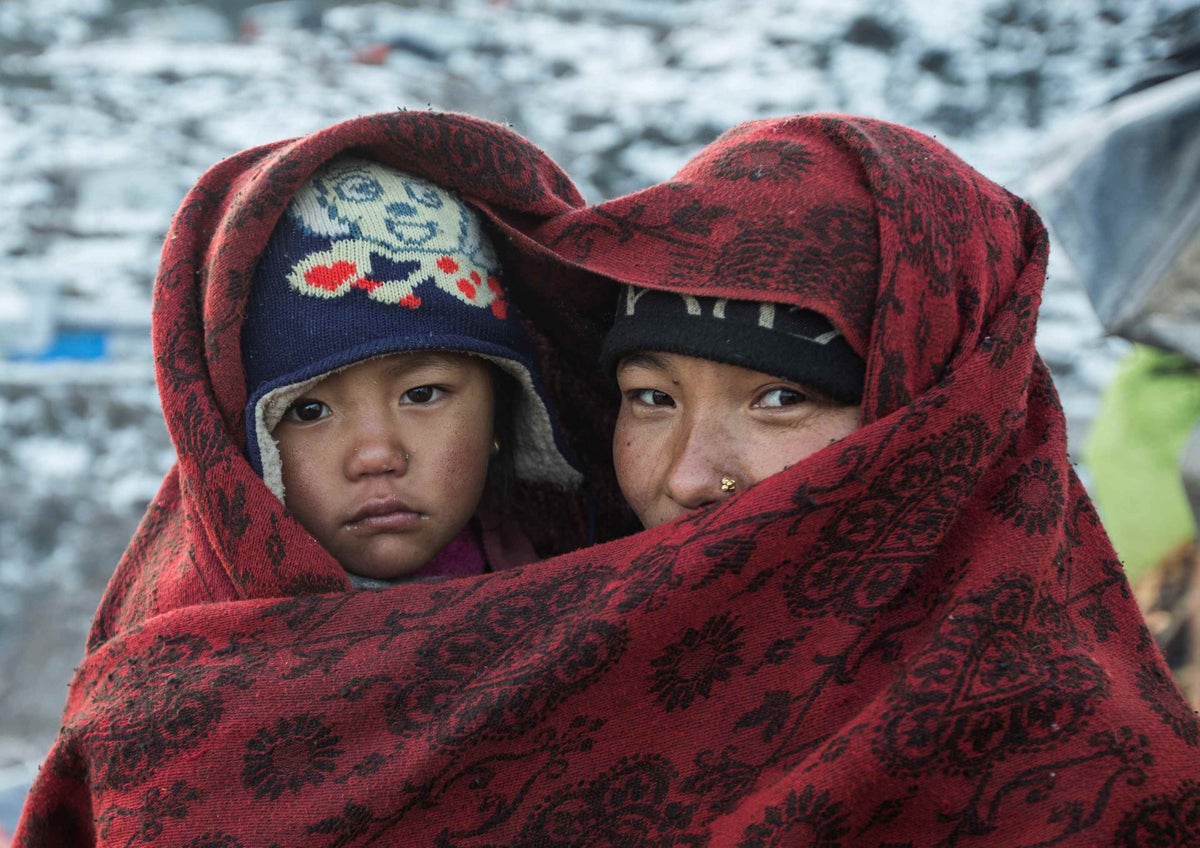
Luz, Colombia
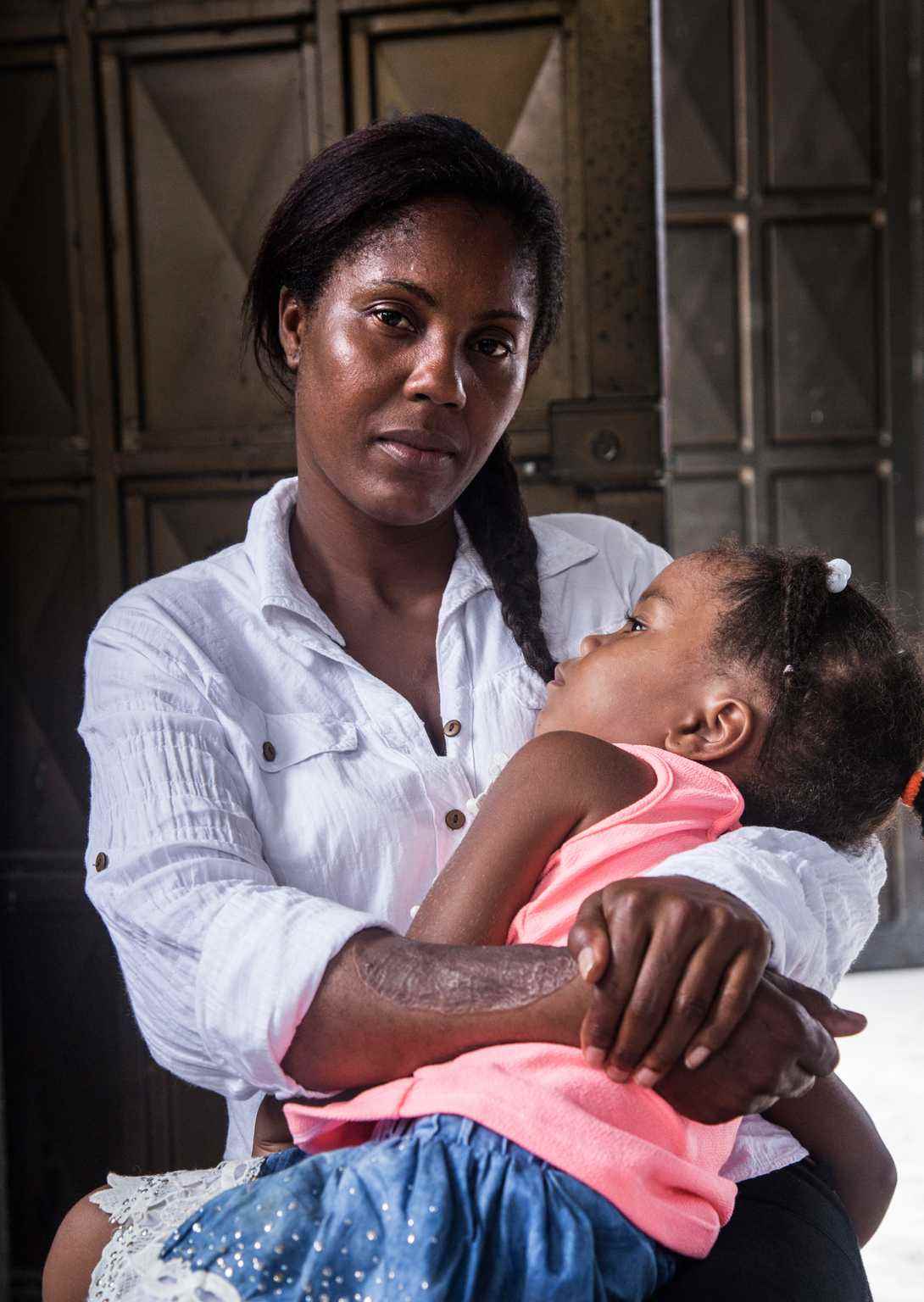
“What I remember most is my baby’s scream. I never heard a baby scream so loud. It was frightening, even scarier than the explosion itself. Her little face was all covered with blood.”
After surviving a landmine explosion in 2012, Luz helps other Colombians avoid the explosive hazards that have killed or injured 11,000 people since 1990. “There are a lot of landmines here and no signs to point them out. I feel like I’m saving lives.”
Safa, State of Palestine
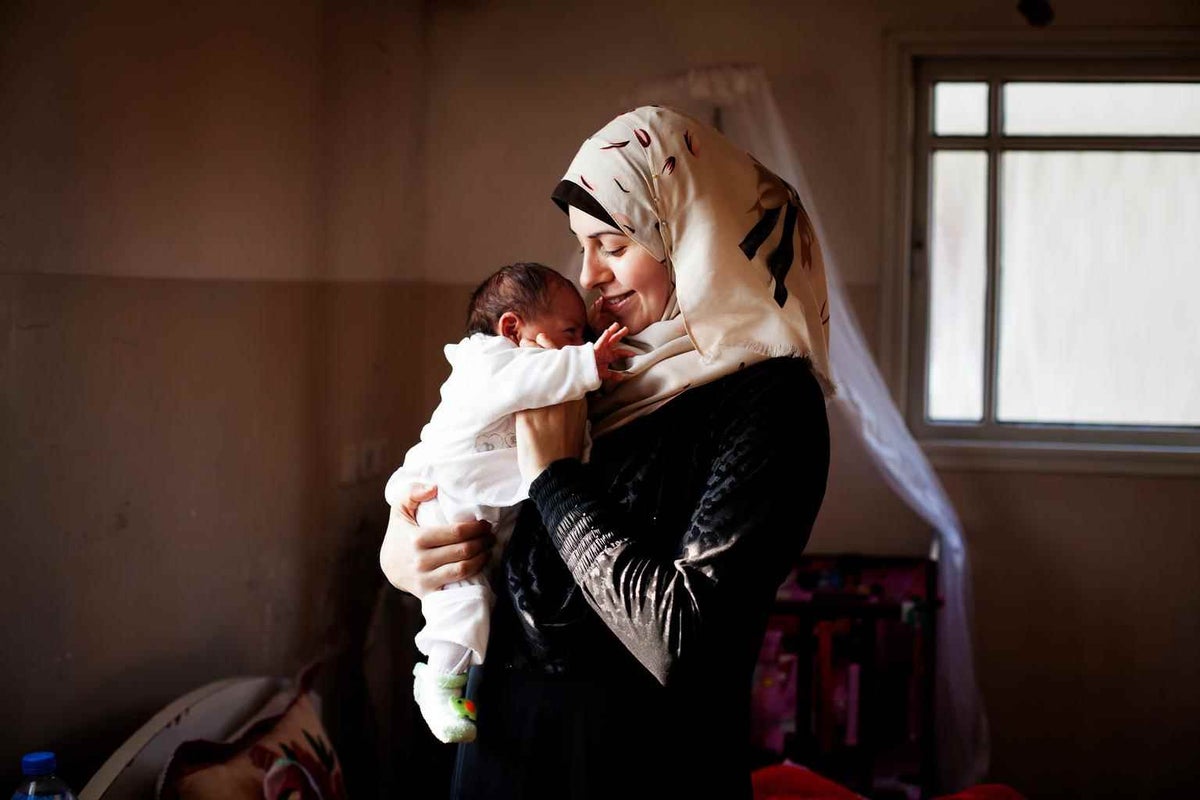
Safa loves Gaza but fears for the safety of her young daughter.
“I wish for my daughter to study medicine but above all, I wish for her to live a life in peace.”
South Sudan
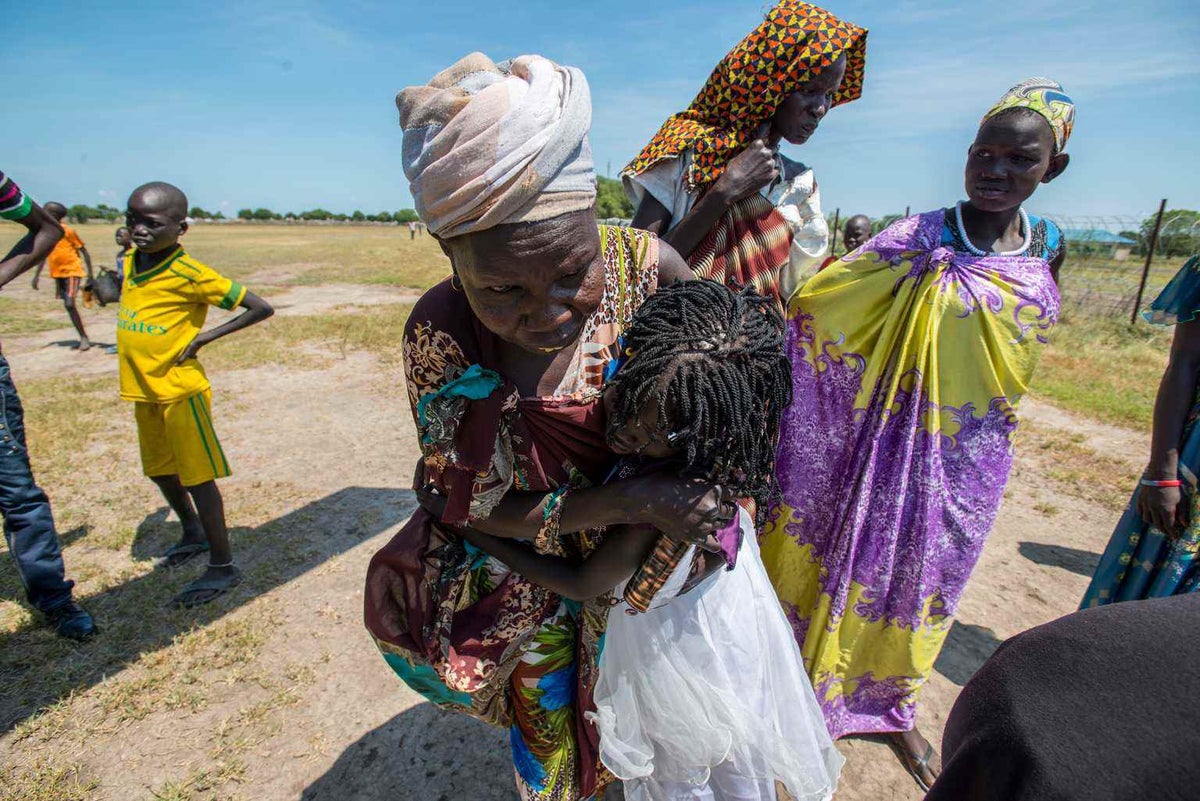
Conflict tore apart these families for two excruciating years, but UNICEF helped to bring them back together. This mother and daughter cried tears of joy as they met again on the airstrip at Akobo, South Sudan. By the end of 2015, UNICEF had reunited 3,600 children with their families and community.
Alice, Brazil
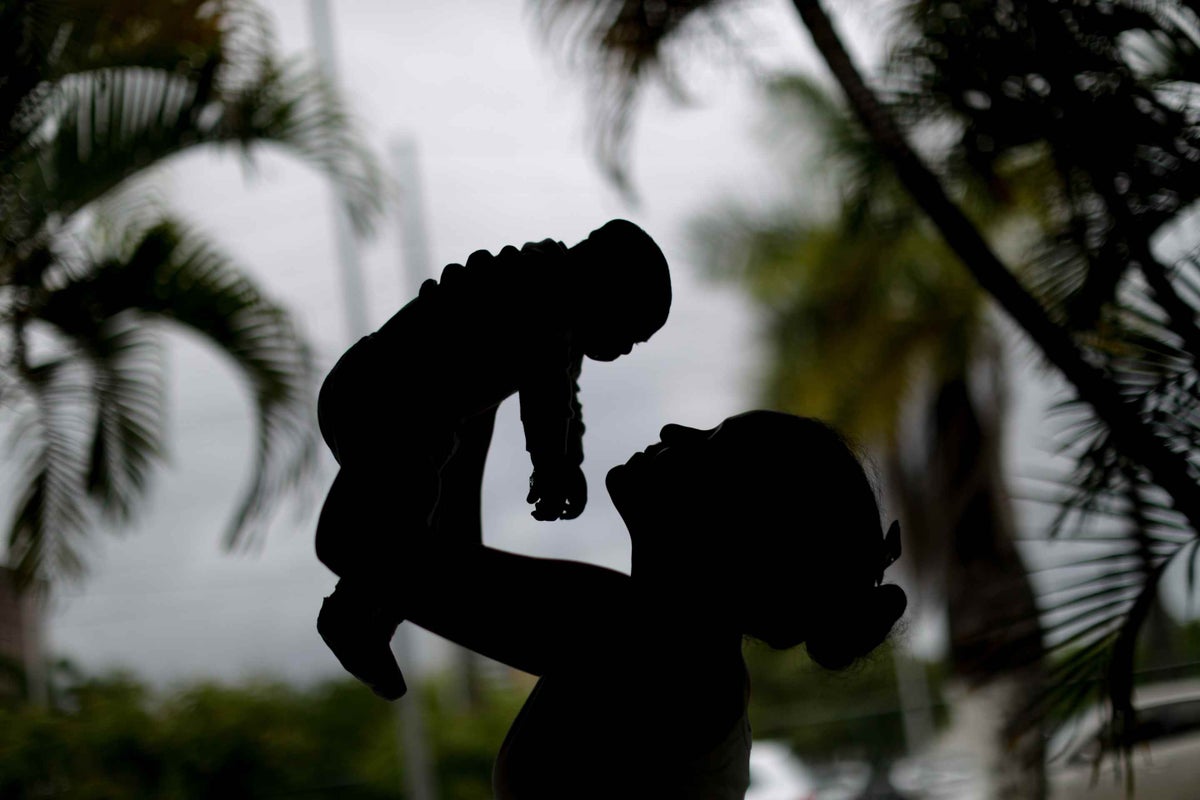
“Towards the end of my pregnancy, they told me my son had a problem in his head, a calcification,” remembers Alice*, a 15-year-old mother from Brazil “Then, when he was born, I learned he had microcephaly.”
“Then they asked if I had Zika and I didn’t even know what that was.”
“Now I will take care of him, which is what is important. I need to be very responsible. Sometimes I don’t even sleep. I have stopped studying. I intended to get back, but with all his treatments… it would be very complicated, very intense.”
UNICEF is working in 35 countries across Latin America and the Carribean to control the spread of Zika Virus, limit its impact on children and their families and help drive the development of rapid diagnostics and vaccines.
*name changed
South Sudan
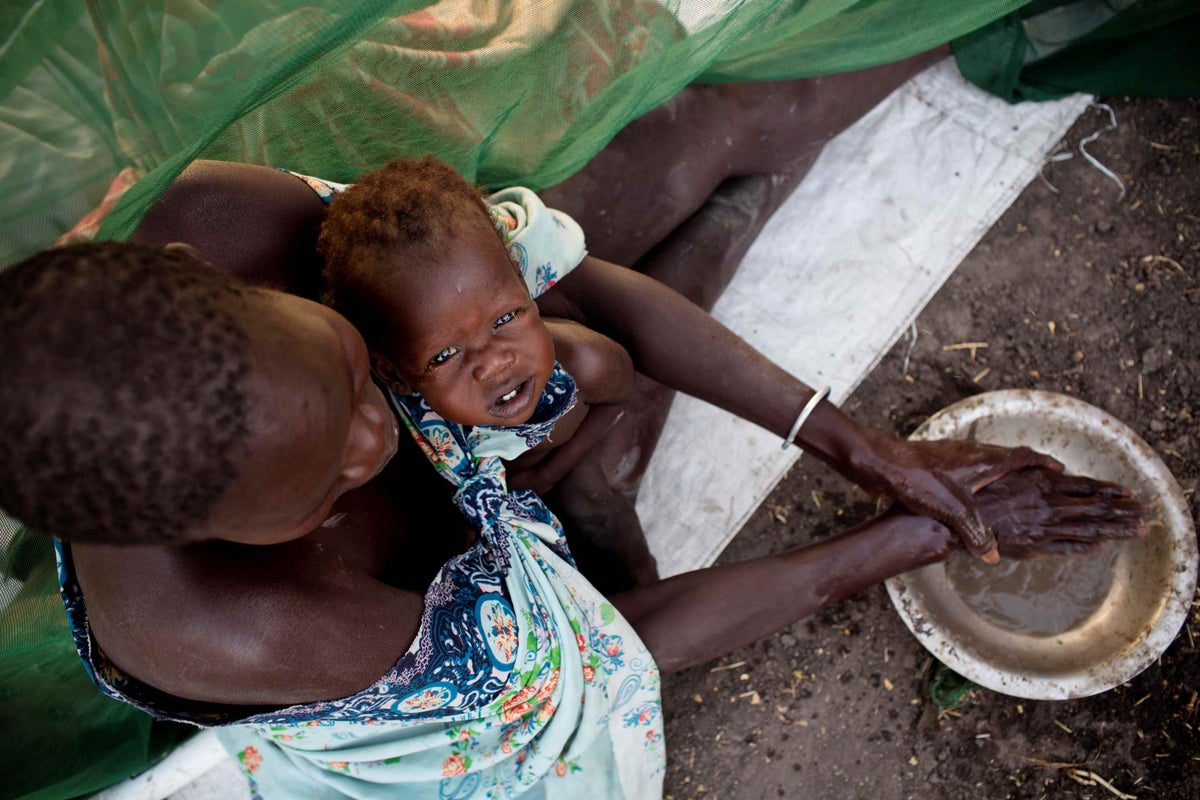
Metab, Iraq
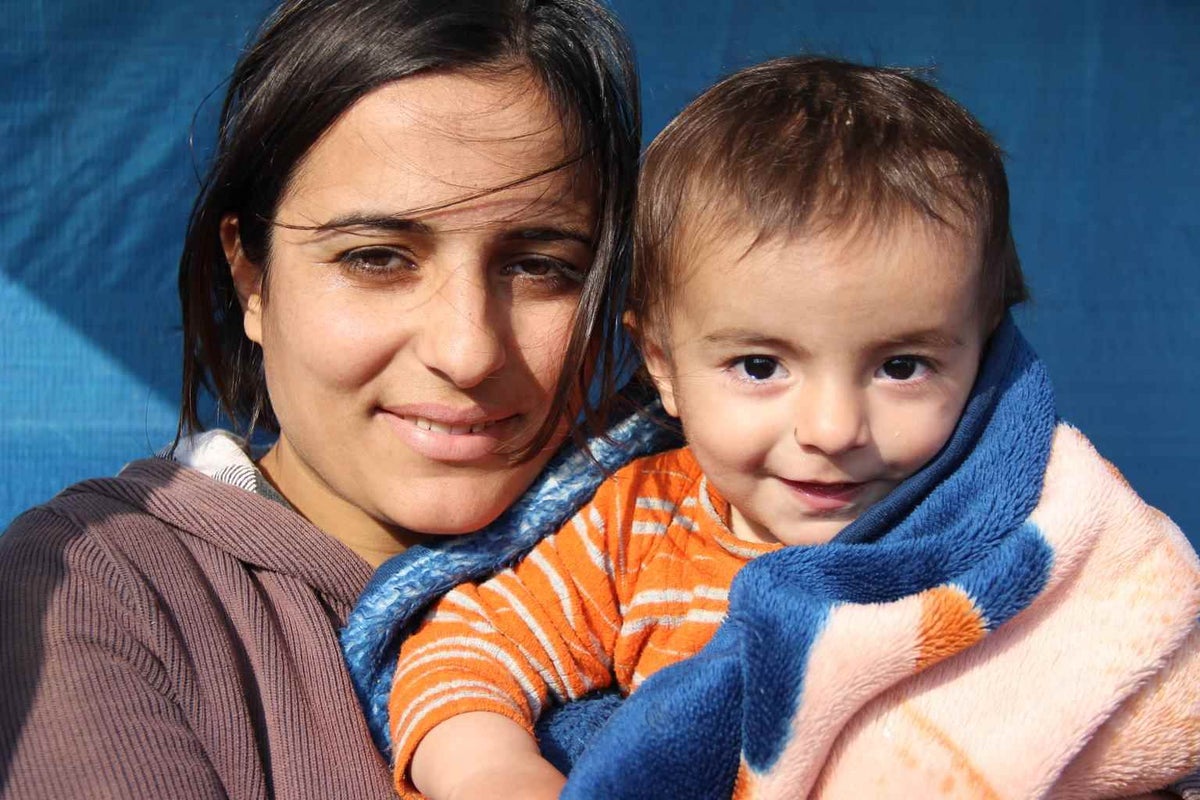
Metab was 9 months pregnant when she and her family left Syria, not because of direct violence but because they couldn’t survive the skyrocketing cost of food and lack of jobs. She walked the last two miles into Domiz refugee camp in Iraq and went into labour almost as soon as she arrived “because the walk was so difficult”.
Little Khalil was frail and underweight when UNICEF met him at one year old. But Metab was hopeful that her son was getting better “step by step”.
Kadiatu, Sierra Leone
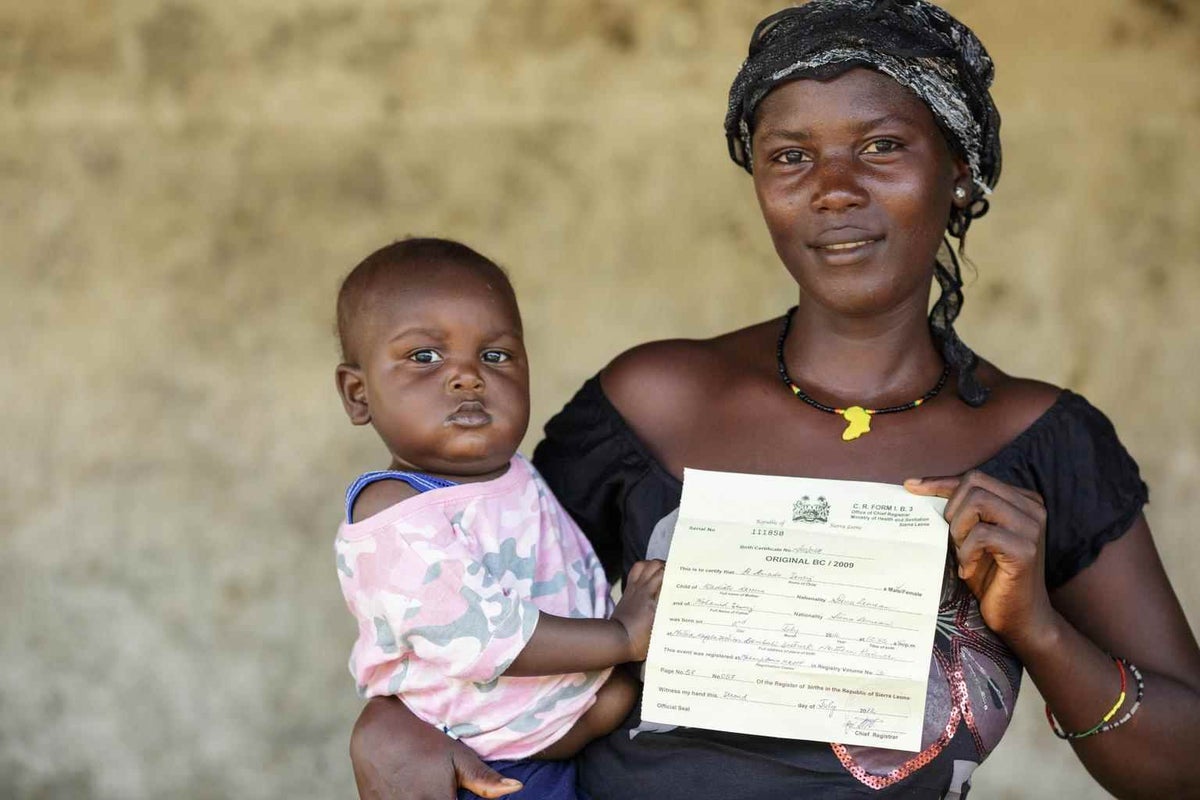
This birth certificate may be the most important document in Amadu’s life.
In Sierra Leone, many children are not registered at birth, but this fundamental right opens the door to all others. It helps children access health services, education and protects them against early marriage and child trafficking.
Here, 27-year-old mum Kadiatu Koromo holds her son Amadu outside their home in the village of Mateneh in Sierra Leone. She has been able to secure a birth certificate for him, formally marking his entrance into the legal system.
Melissa, Bolivia
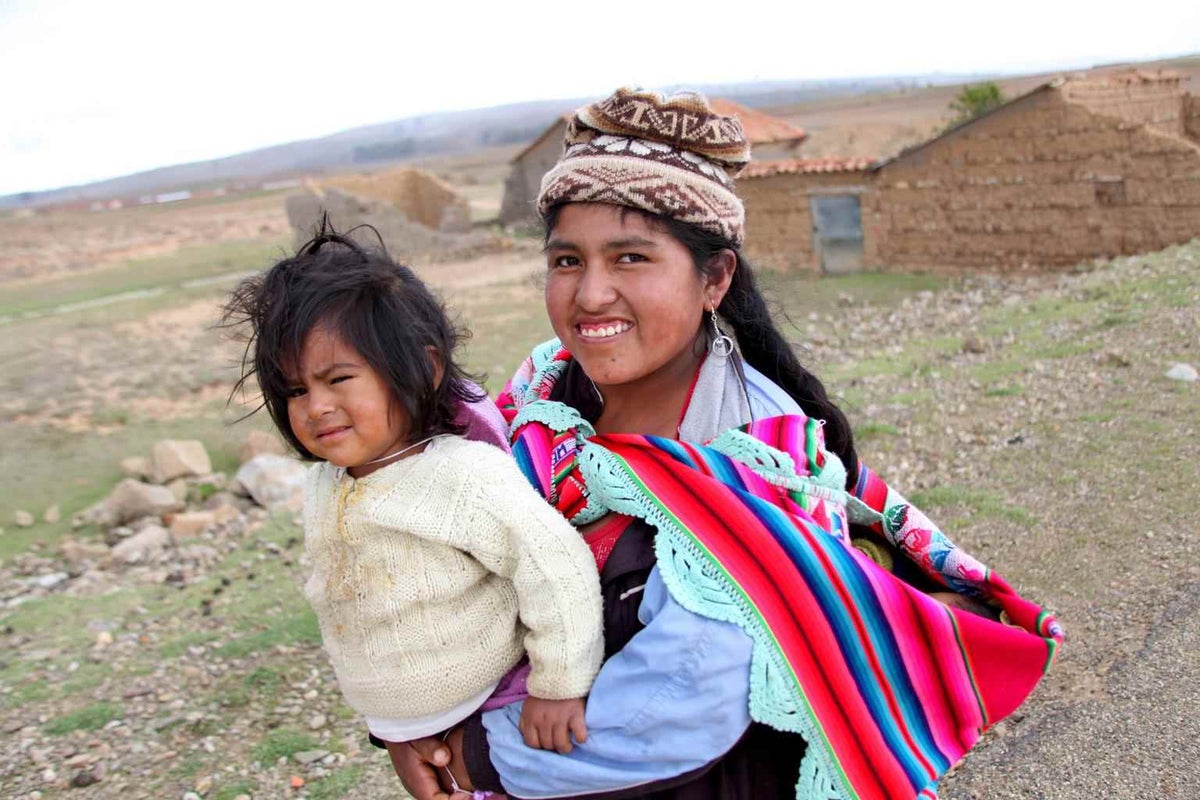
Issata, Sierra Leone
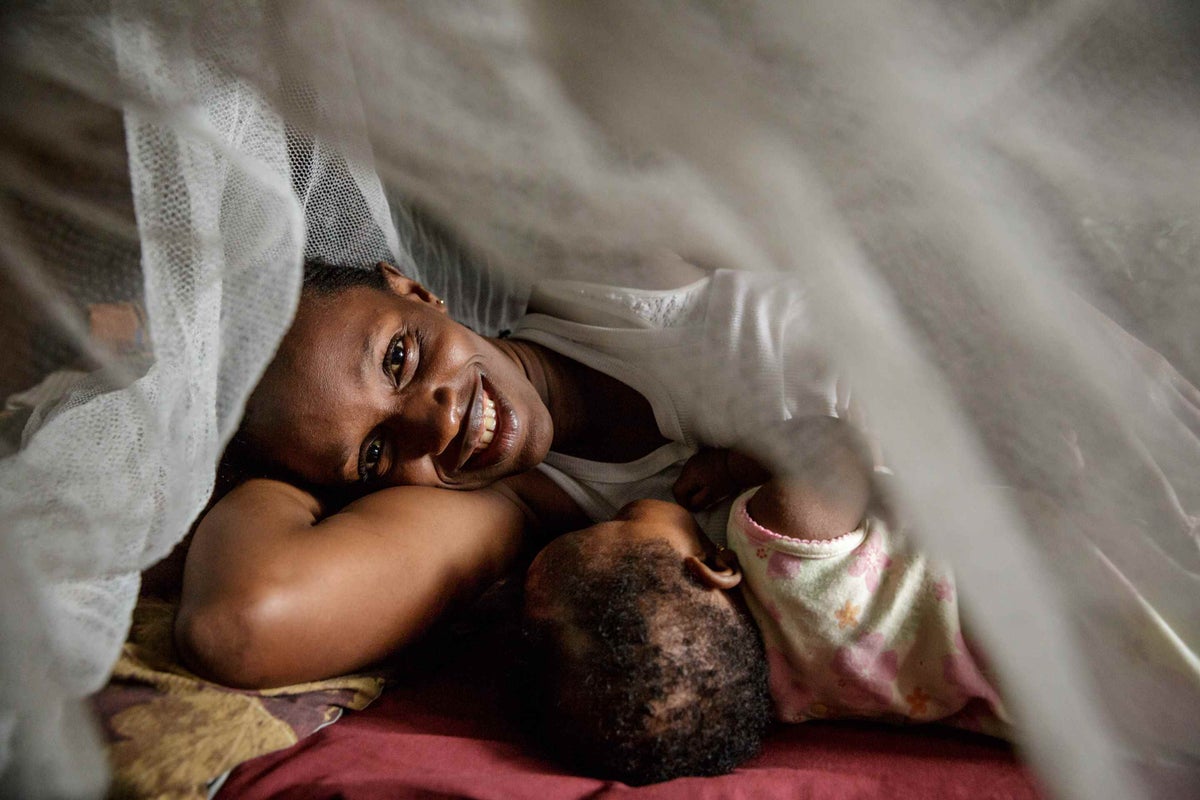
Philippines
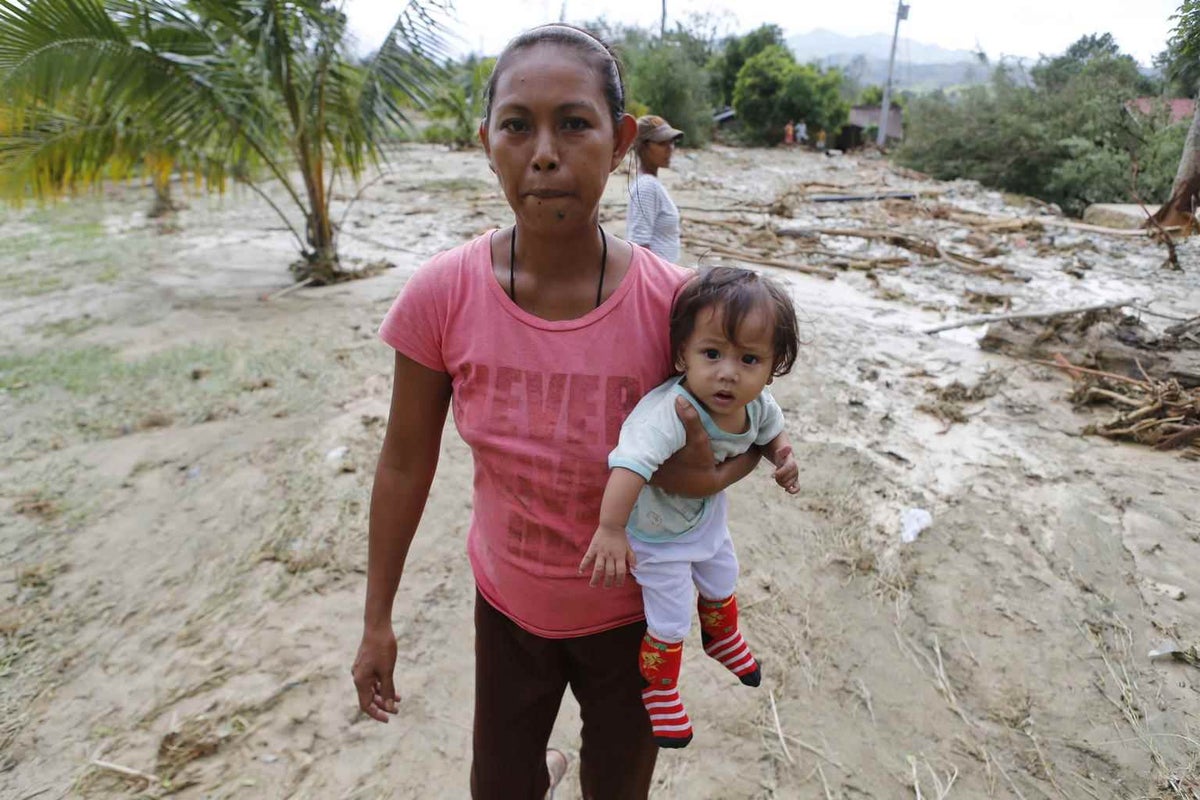
Nepal
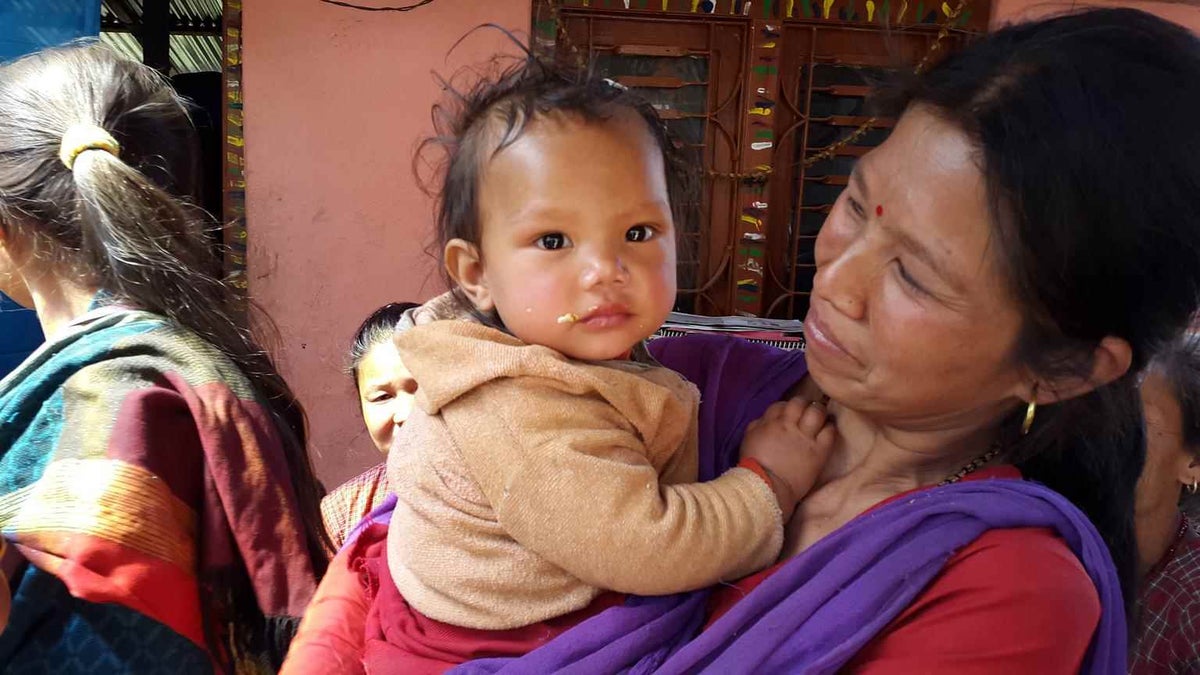
Neveen, State of Palestine
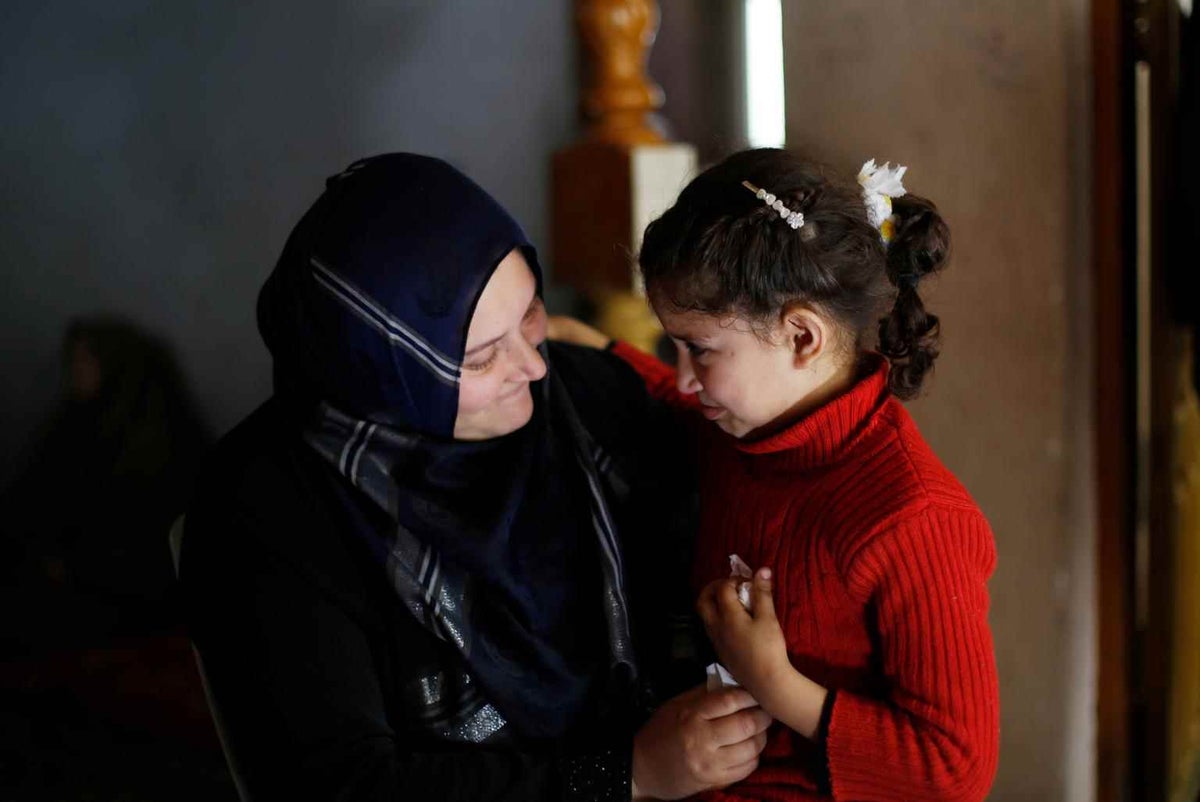
Neveen’s husband passed away in a blast that hit a UN run school in Gaza. The blast wounded three of her children, including 6-year-old Rosol, and left Neveen with a permanent disability.
Now responsible for raising her four children alone, Neveen’s main concern is their health.
“[Rosol] saw a lot of things - people injured with missing hands or legs, with wounded faces and eyes. She also saw her father killed. This was shocking for her. It had serious psychological effects on her.” She brings three of them to receive psychosocial support from a counsellor working for UNICEF partner The Palestinian Centre for Democracy and Conflict Resolution
Eanur, Bangladesh
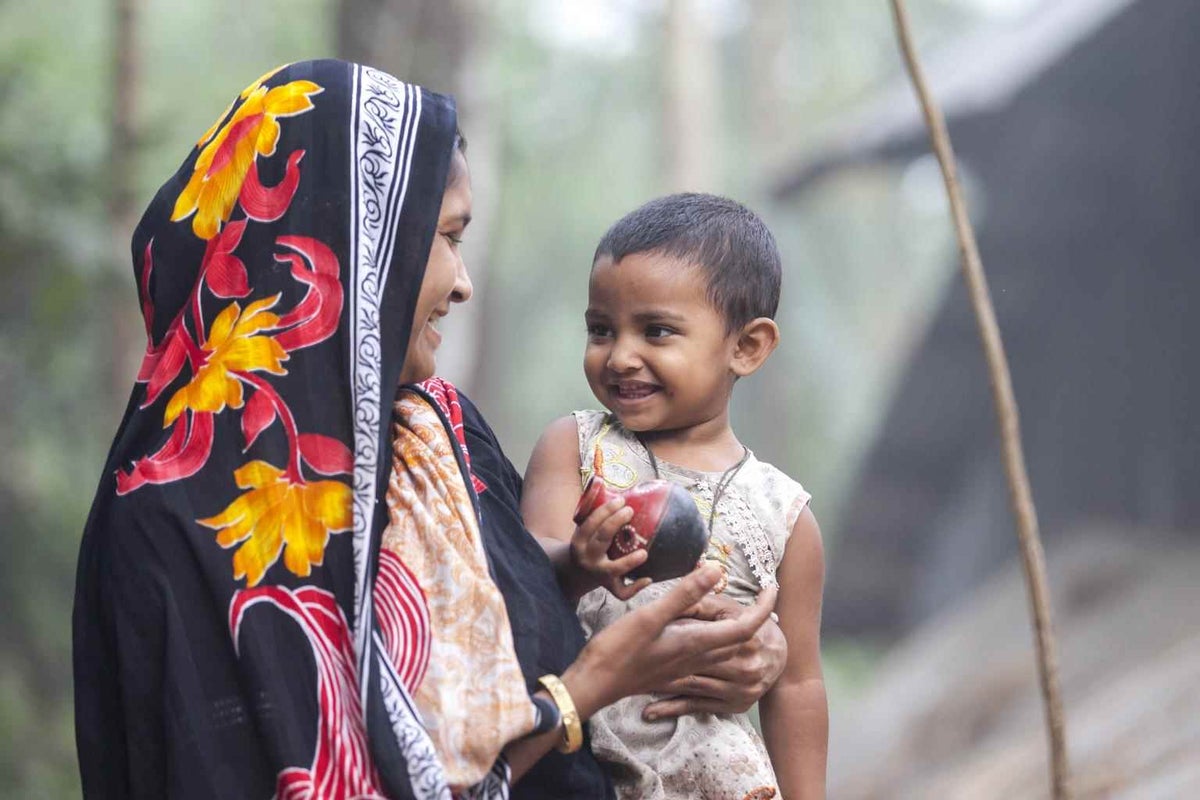
Sareth, Cambodia
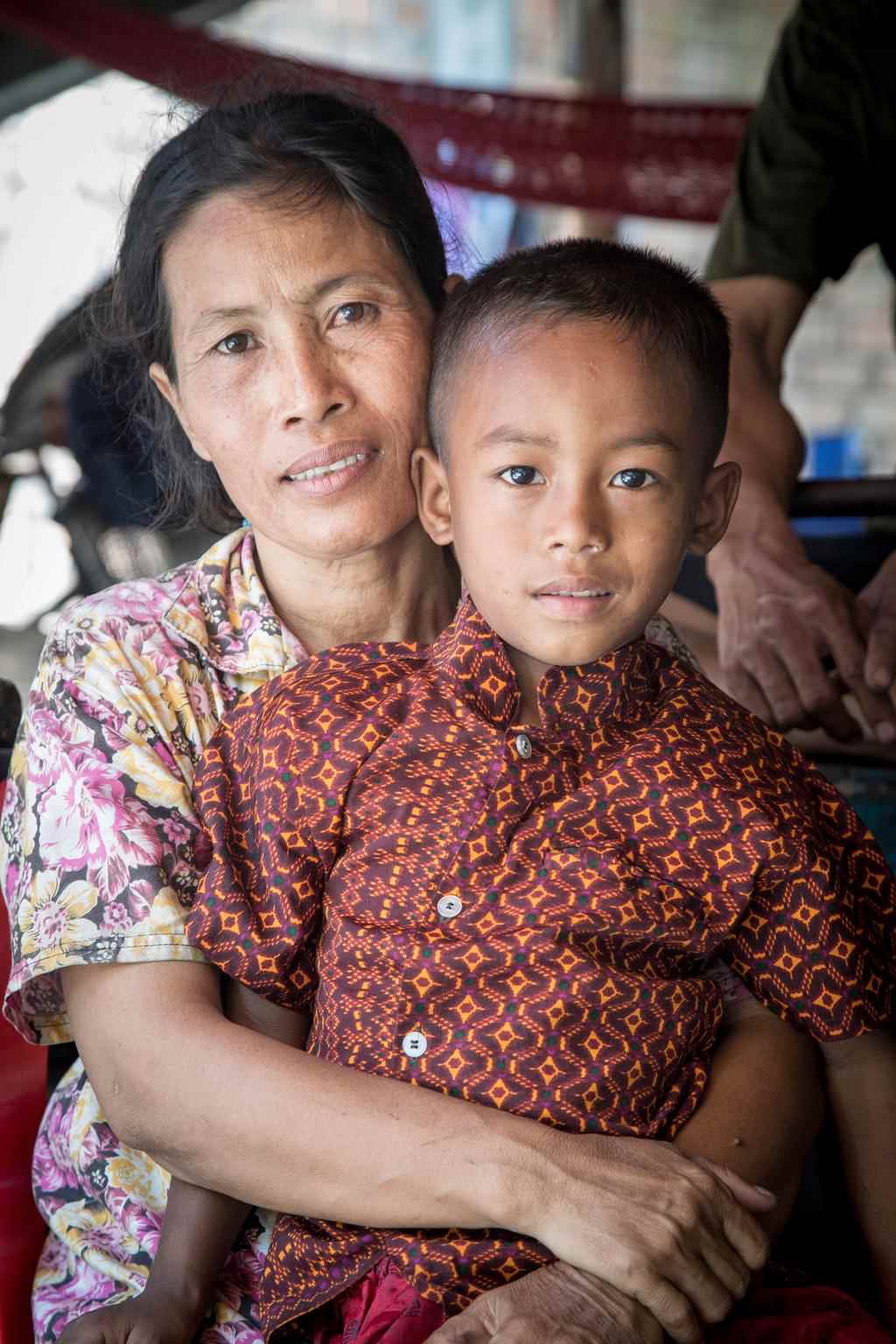
In 2013, Sareth lost her six-month-old daughter to diarrhoea.
“I breastfed her in the morning, around 6 or 7 o’clock,” she says, tears filling her eyes. While Sareth collected old cans and plastic bottles from the streets of Phnom Penh to buy food for her family, her house flooded with sewage and her daughter became sicker.
“We took her to the hospital, but they couldn’t help, and she died. I feel so sad about it,” she says, holding her hands tightly together.
Around 50 children under the age of five die every day in Cambodia from diseases that can be easily prevented and treated, such as diarrhoea and pneumonia. UNICEF and its partners are working around the clock to provide much needed support to vulnerable children like those living in Phnom Penh’s urban poor communities. You can help by purchasing an Inspired Gift of oral rehydration salts that replace fluids lost by diarrhoea and dehydration.
Nonhlanhla, South Africa
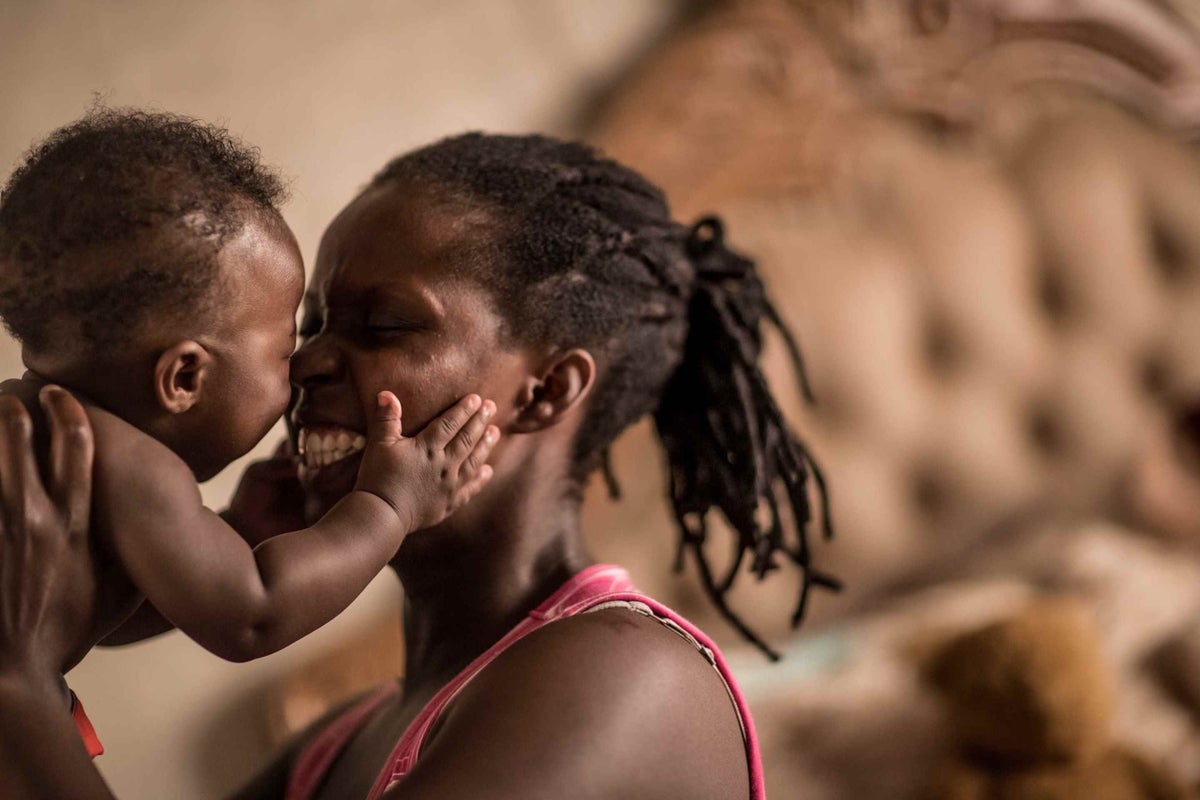
When Nonhlanhla discovered that she was both pregnant and HIV positive, she was frightened. But through antiretroviral treatment and uninterrupted breastfeeding, her son Answer was born healthy and HIV-free in 2013.
Ami, Senegal
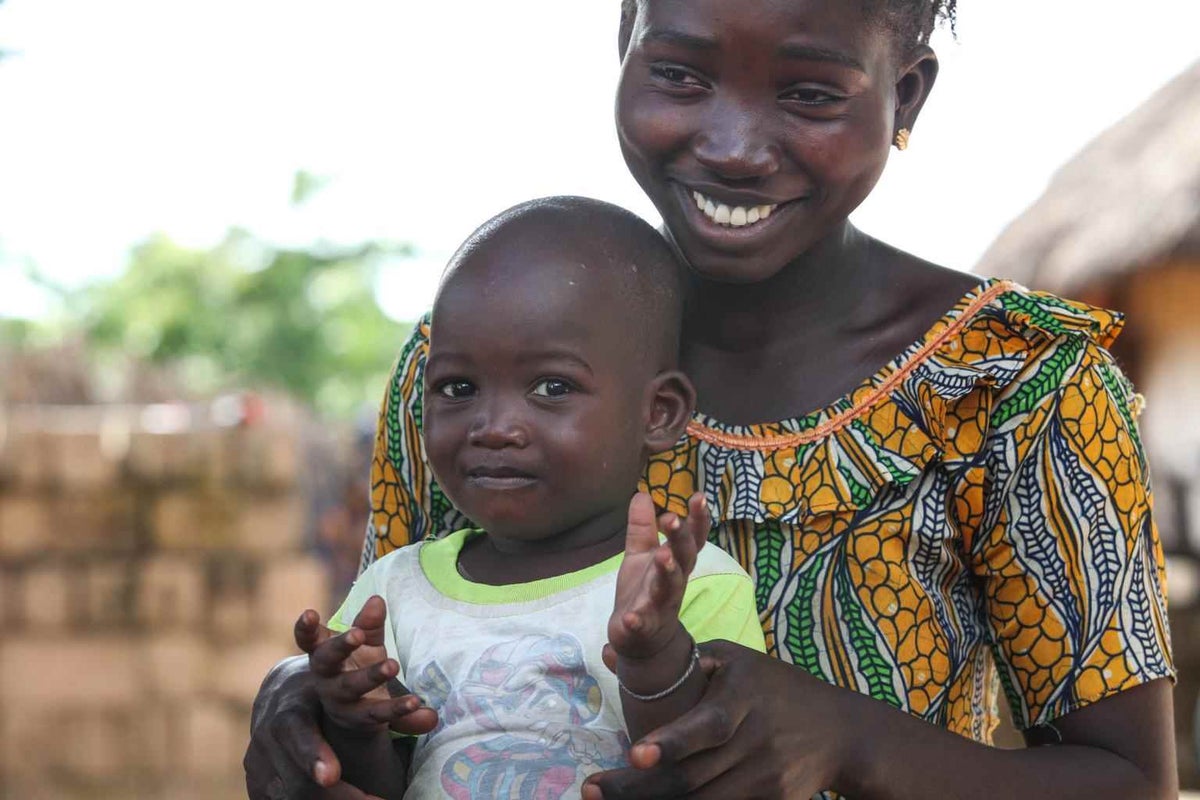
Maimoma, Senegal
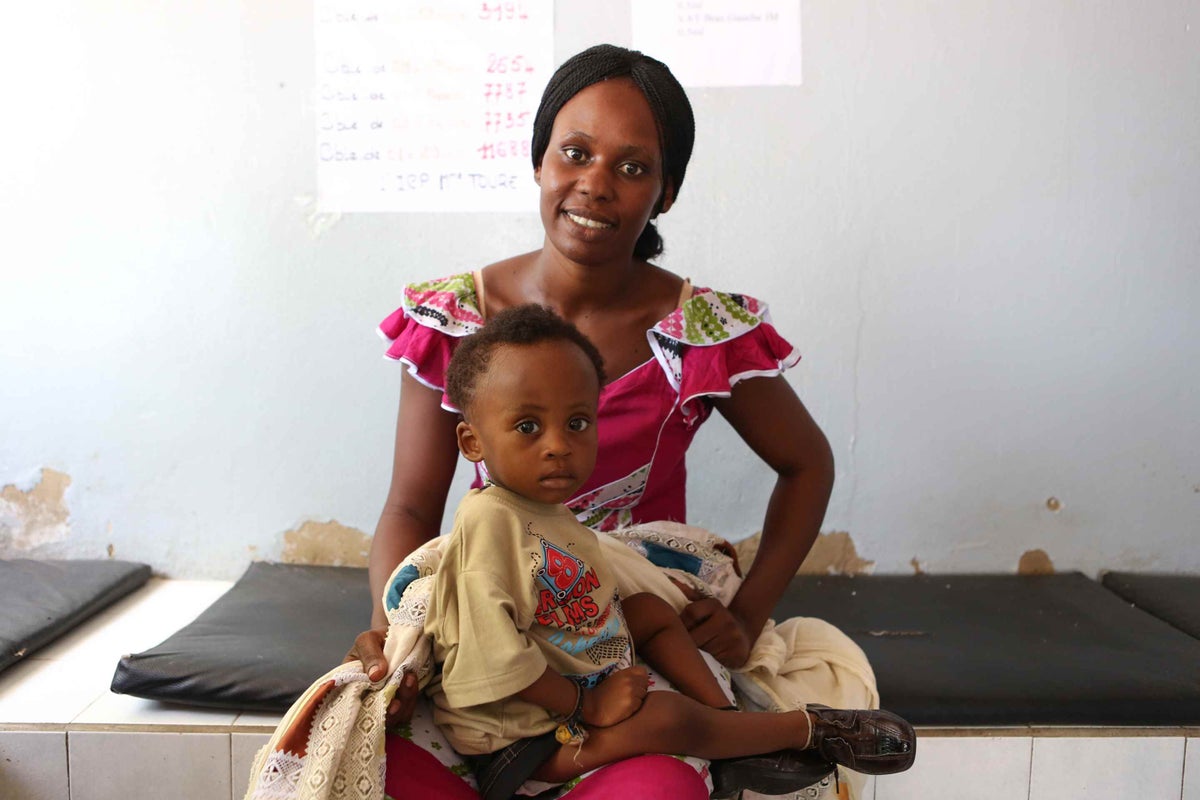
Mariya, Ukraine
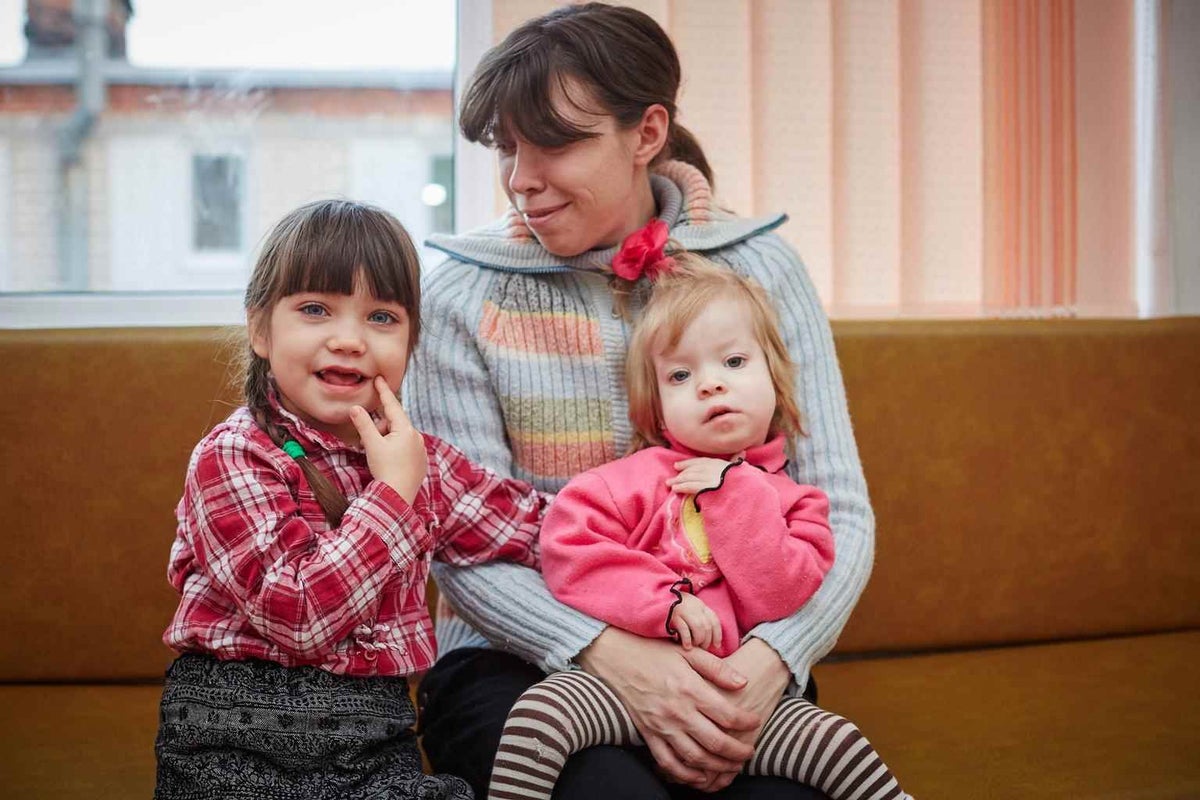
In 2014, Mariya and her daughters fled fighting in the eastern region of Ukraine. "There is continuous fighting. There is no water. Social services are not paying; pensions have not been paid for over five months.” Internally displaced in Kharkiv, her youngest daughter Alina received assistance from a UNICEF-supported, government-run centre for children with disabilities.
Sifar, Serbia
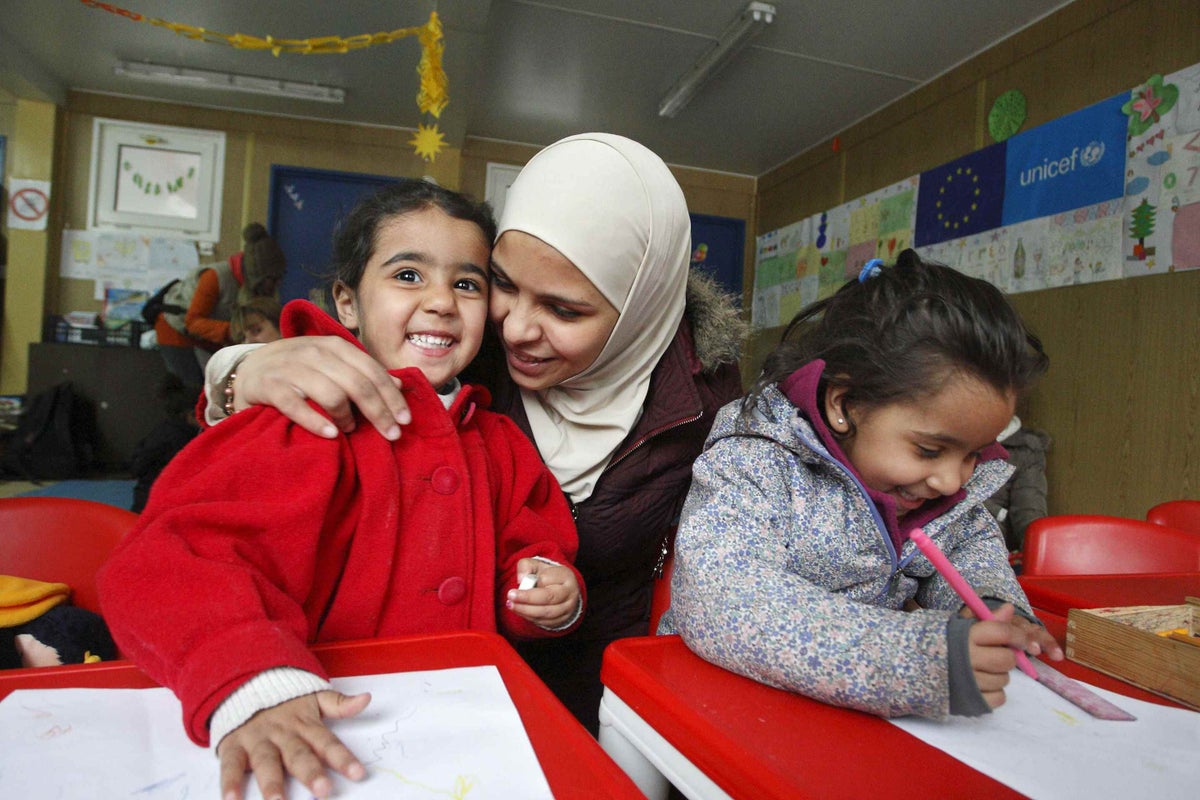
Mariam, Mali
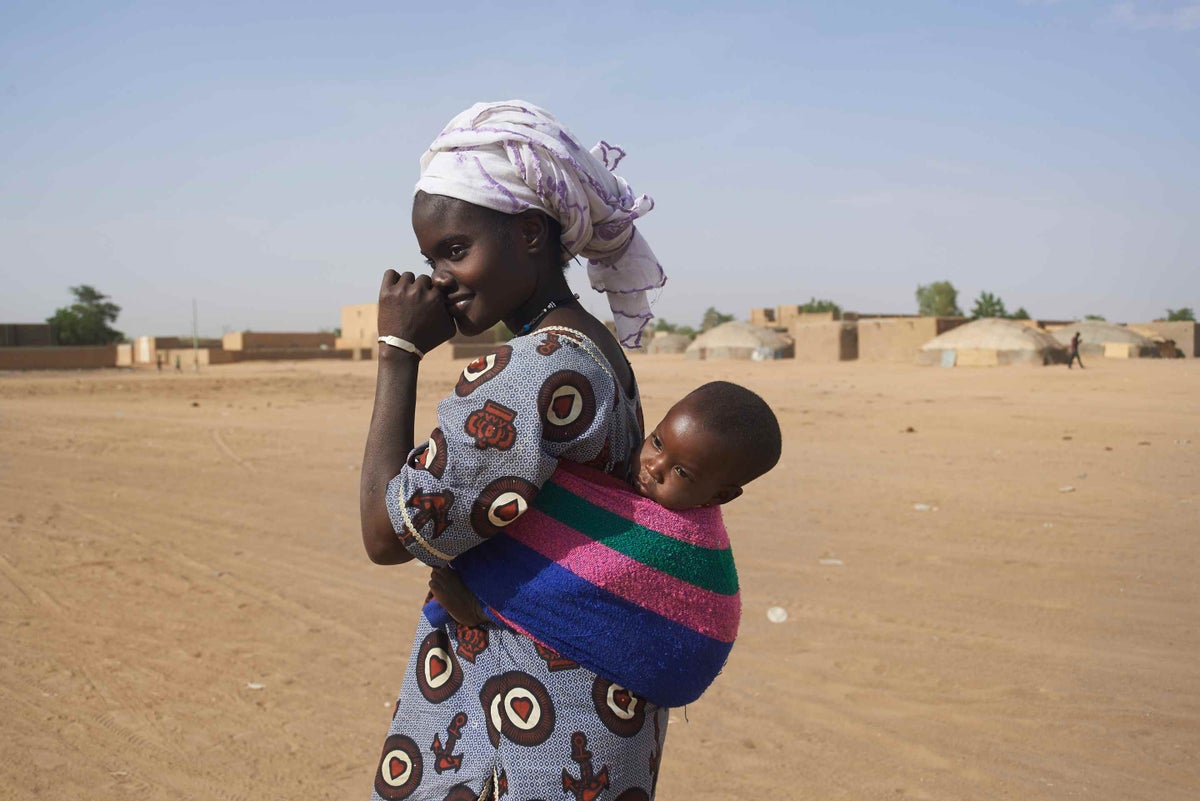
When this photo was taken, Mariam’s son Al-Matar had just been discharged from the general hospital in Gao, Mali, after eight days of treatment for severe acute malnutrition. While in hospital, Al-Matar received medication and high-protein powdered milk to boost his weight and provide essential nutrients. UNICEF together with the European Union is working to reach 1 million children in Mali with nutrition support.
Wherever hunger strikes, you can help provide children like Al-Matar with life-saving nutrition like therapeutic food sachets and therapeutic milk.
Mantume, Uganda
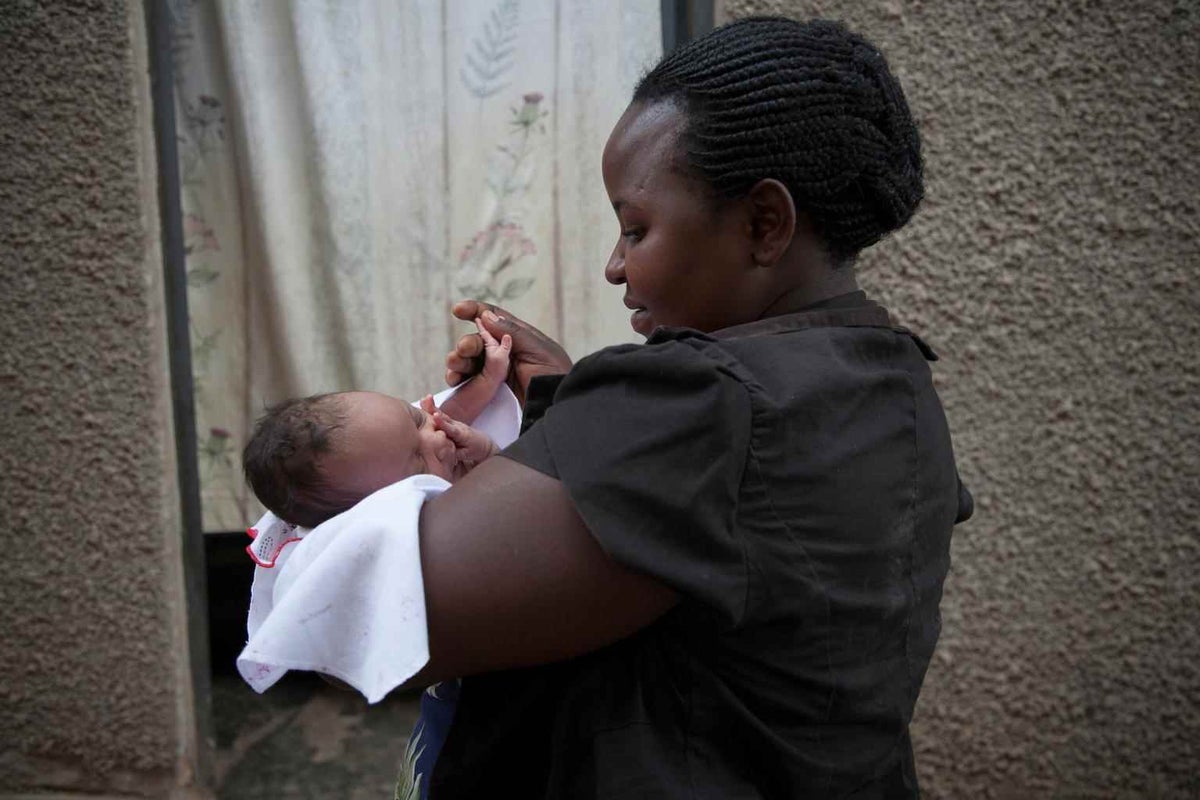
Islam, State of Palestine
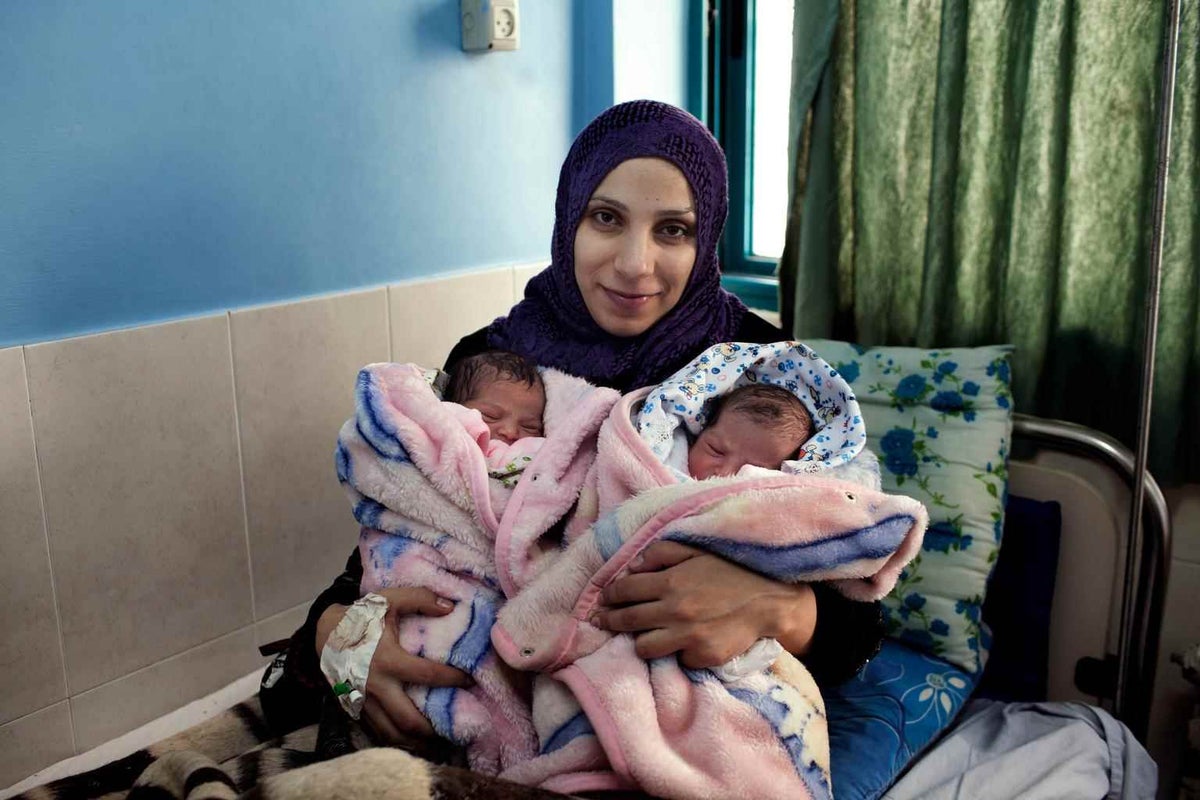
Islam Selek describes life in Gaza simply as “bad”. When bombs fell while she was pregnant, she feared she would lose her children. She wants to raise her newborns here but worries about their future.
“I want my daughters to have a good life and a good future without war. I want them to have a job so that they can take care of my father when he gets older.”
After years of destructive violence, UNICEF is working in Gaza to restore children’s access to water, health services and education. In 2015, UNICEF and its partners reached more than 60,000 mothers in Gaza with counselling on breastfeeding and infant feeding practices.
Idéita, Chad
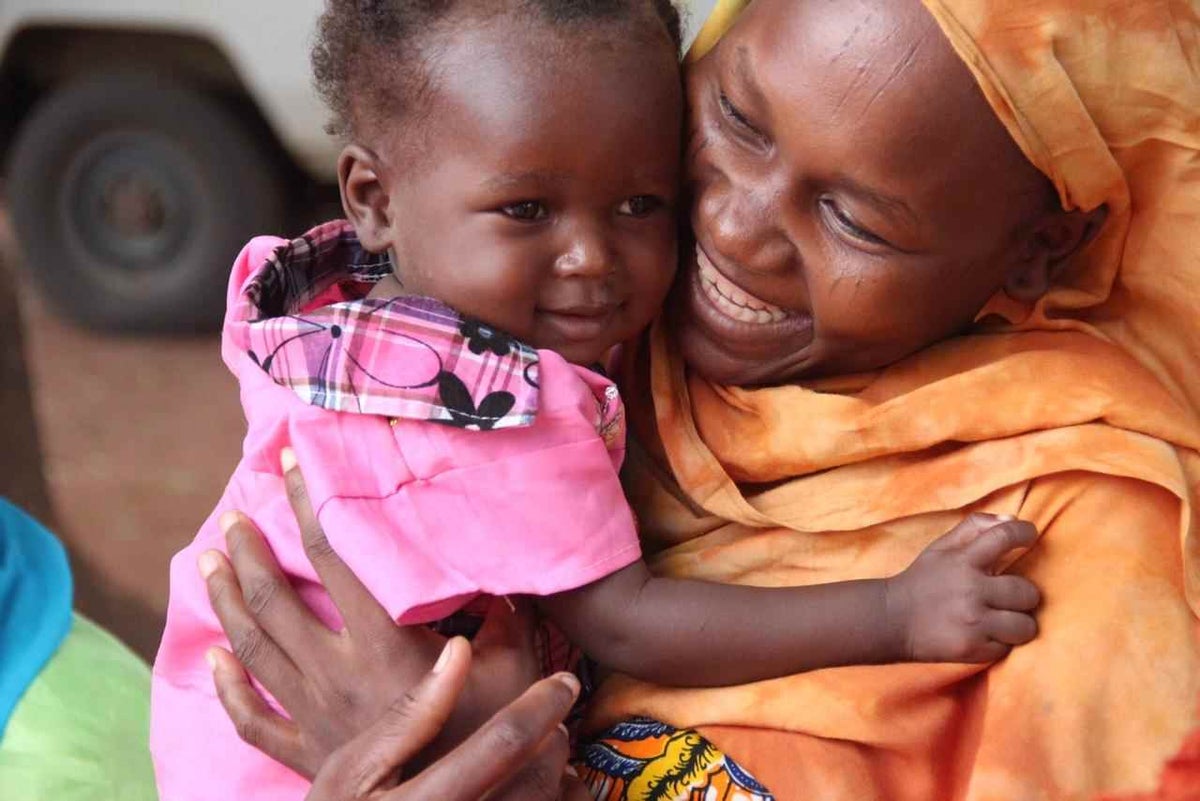
Maryamu, Nigeria
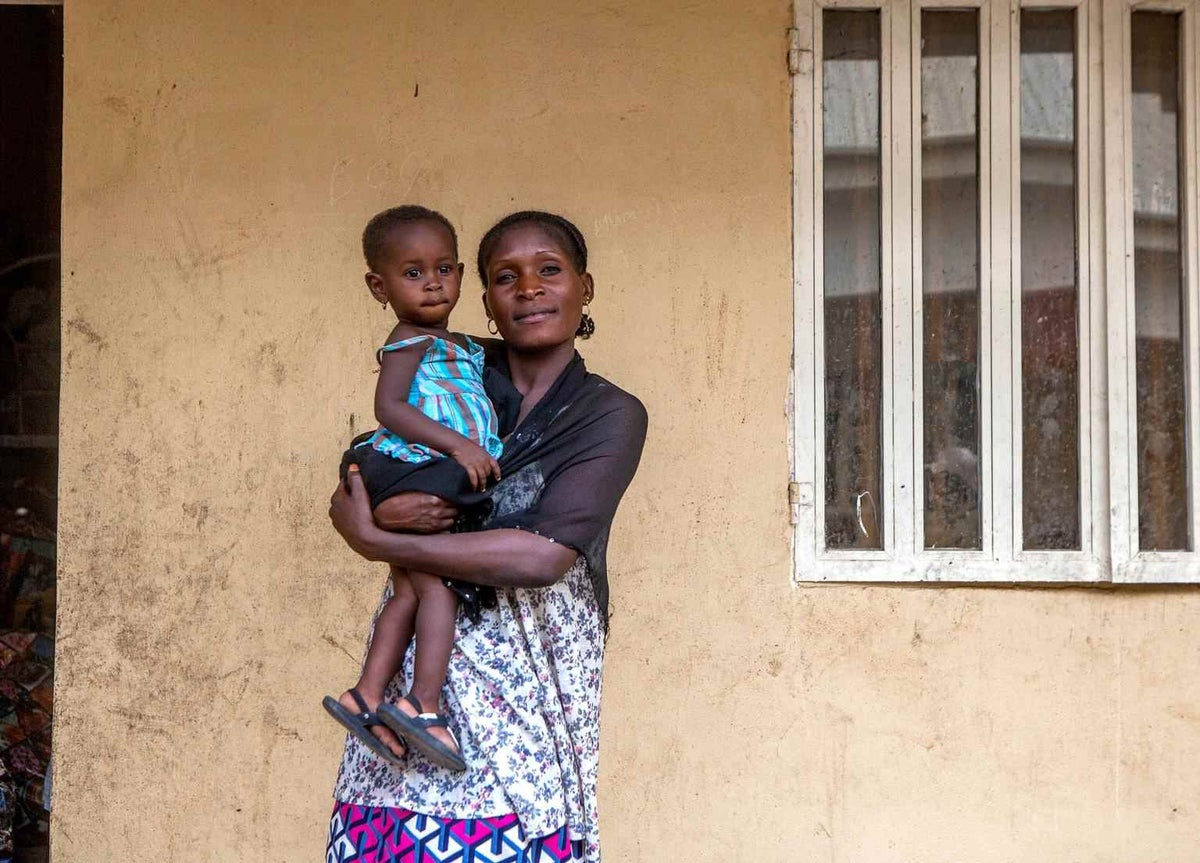
Maryamu was home sick when members of the Boko Haram rebel group attacked the church in her hometown. When she heard gunshots, she grabbed her daughter and ran.
Maryamu has not seen her husband since and fears the worst.
In a camp for internally displaced people in Yola, Maryamu and her daughter are receiving medical and school supplies and access to clean water from UNICEF. Maryamu wants to return home when it’s safe - even though she knows there is little left of her former life. “There is nothing in our house. They took it all. We had a motorcycle and many cows. It’s all gone.”
Fatimata, Mauritania
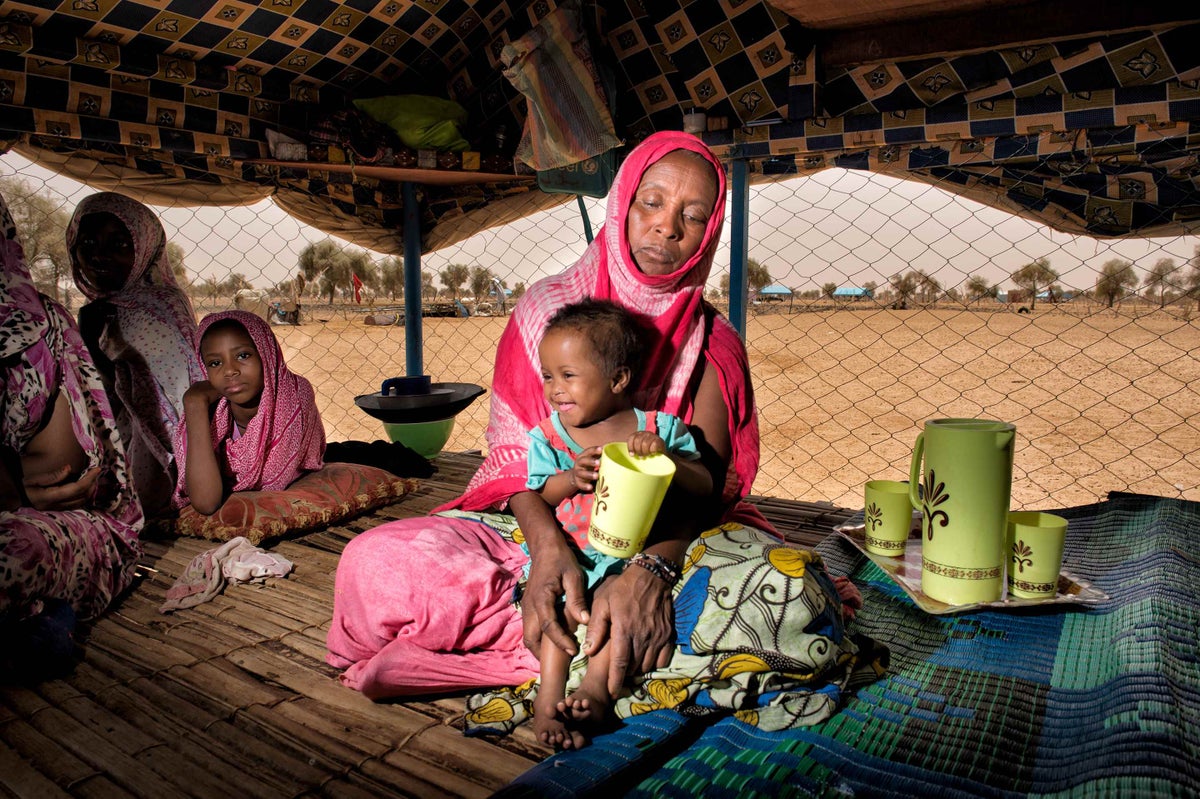
Fatimata Molumuni and her young daughter Tfeila sit in their tent in Mauritania in 2015. Tfeila was found to have severe acute malnutrition during a UNICEF screening and is now treated and fully recovered. You can help UNICEF treat malnourished children by purchasing an Inspired Gift of therapeutic food for a loved one today.
Bimila, Nepal
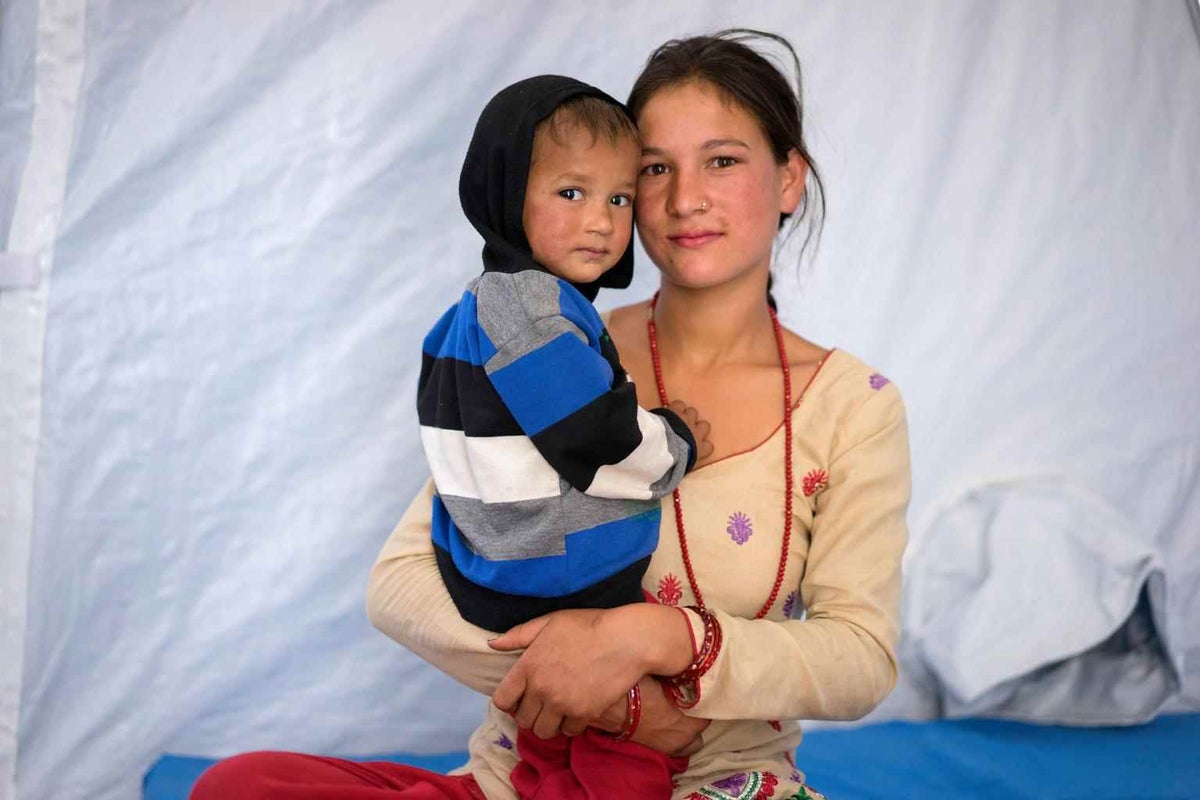
Bimila was outside her house when the earthquake struck. Her husband and four-year-old daughter fled their house before it collapsed but her youngest child - 18-month-old Kris - got trapped under the rubble.
Bimala and her husband rushed into the rubble and dug out Kris with their hands. He was unconscious and covered in dust. “It was terrible. I can’t remember anything [but] the dust and his blue face.”
When Kris regained consciousness, Bimila began to breastfeed him. “I thought ‘Oh my God, we are all alive. If another earthquake happens, we will be OK, because we are safe now. The world can fall apart, but we are together’”. You can give a gift to help UNICEF be there for children like Kris when emergencies strike by clicking here.
Cleara, Ghana
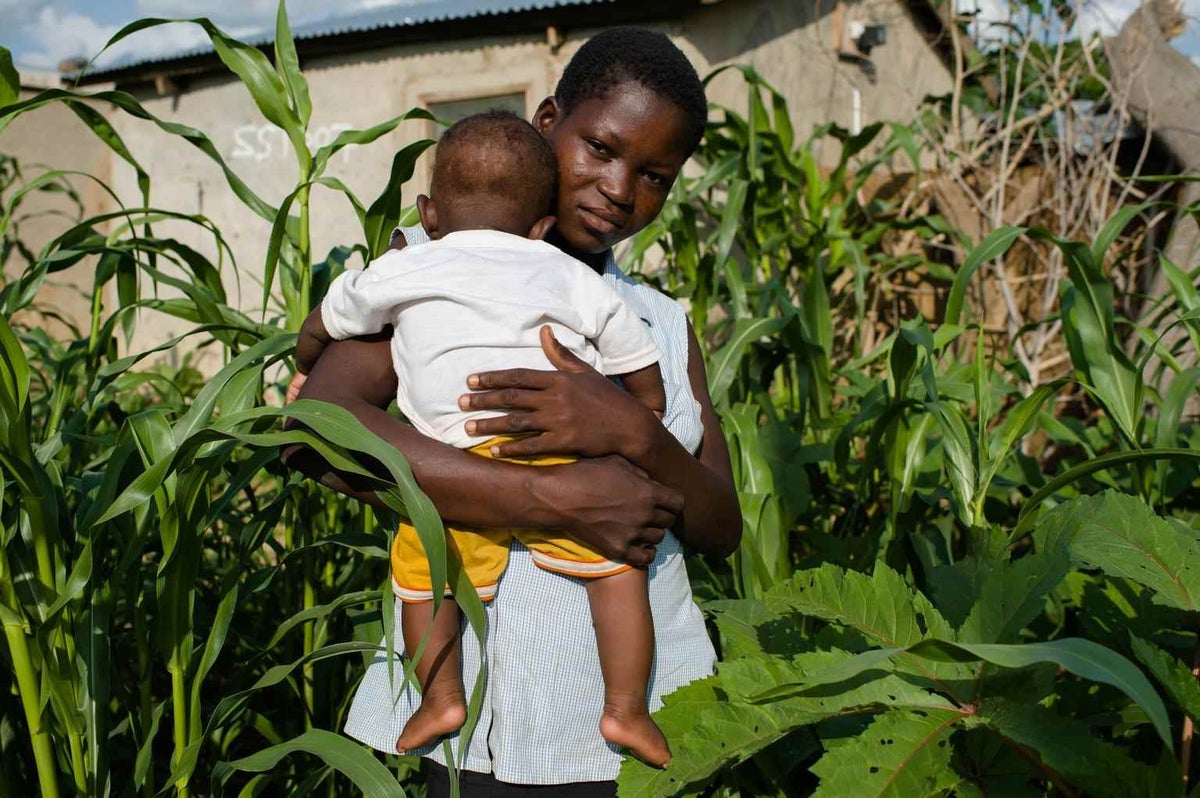
Konimba, Mali
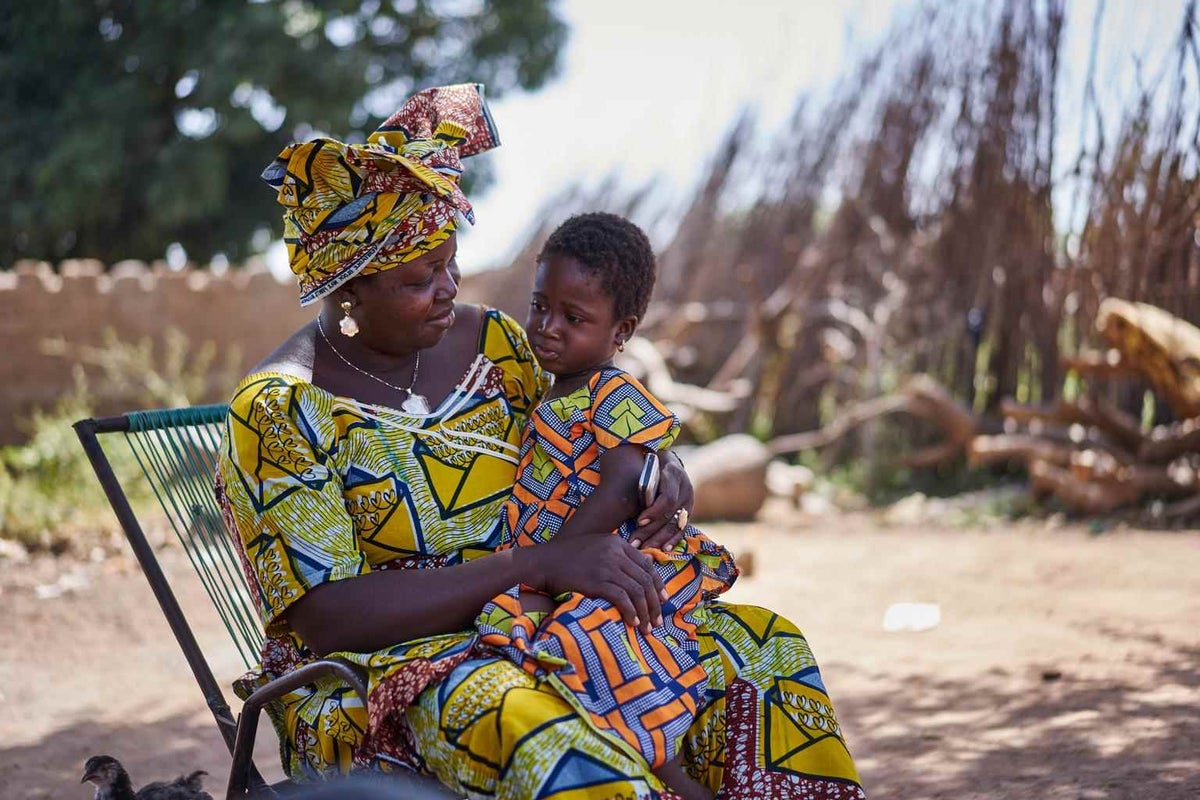
Sharmila, Nepal
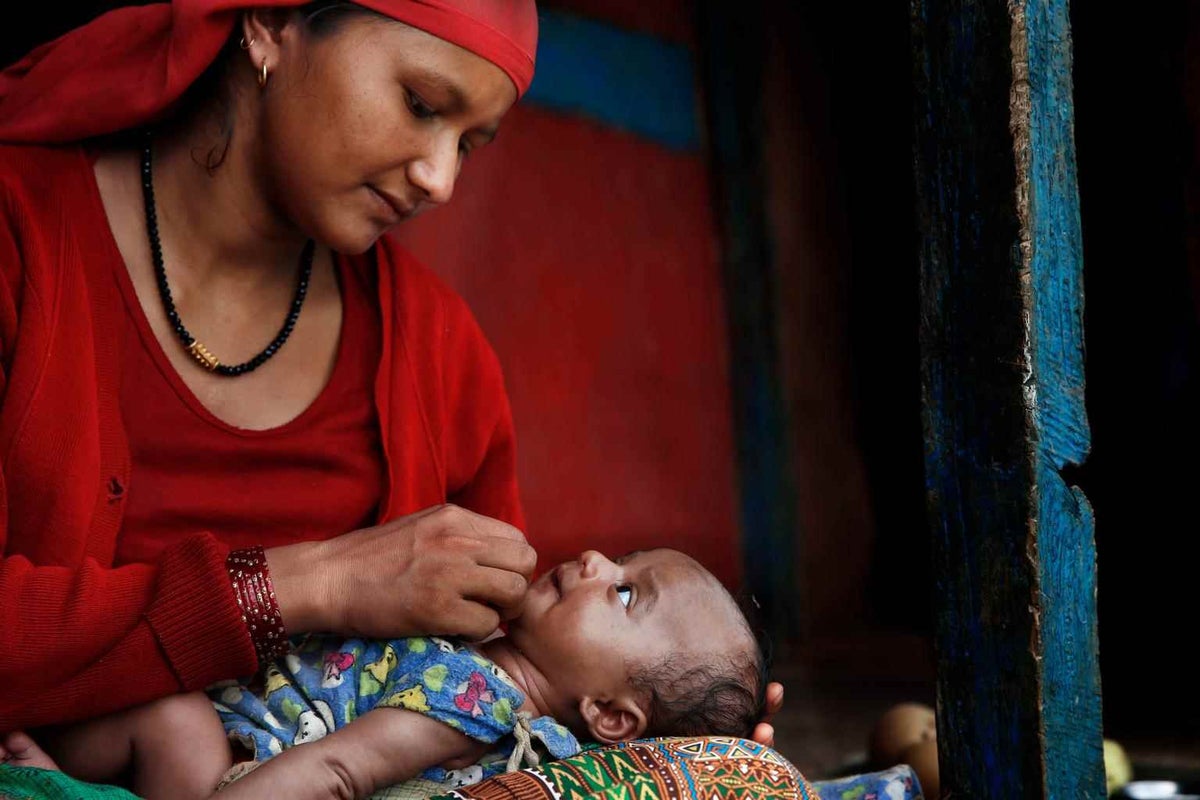
Martha, Malawi
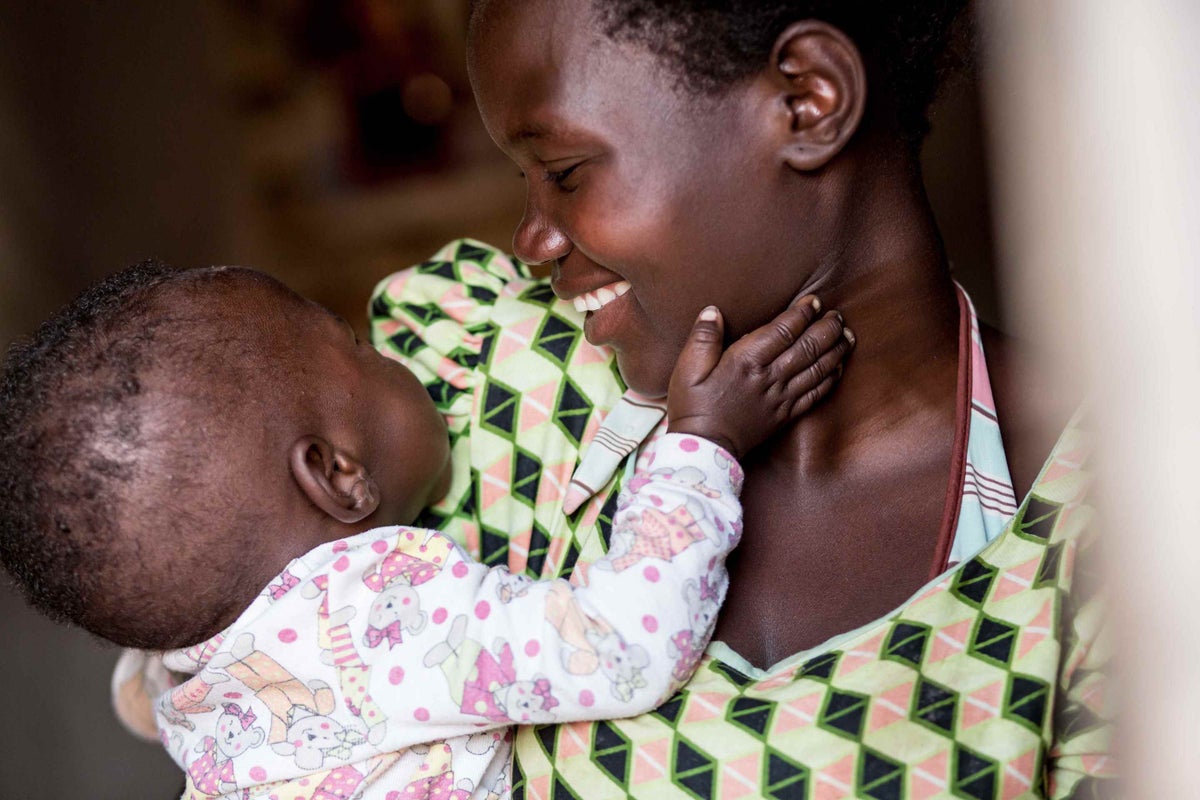
Martha was born with HIV at a time when a diagnosis often meant death, especially for children in low-income countries. Now a mother herself, Martha has defied the odds and her son Rahim is part of Malawi’s AIDs-free generation.
A decade ago, less than 1% of pregnant and breastfeeding women living with HIV were receiving the best treatment available. Now, three in five are on antiretroviral treatment. To prevent transmission from mother to child, Martha took daily treatment and tested Rahim six weeks after he was born.
Martha raises him independently and is clearly proud of her young son: “I was so excited, so happy he was not carrying the virus. [He’s] growing healthy and strong. He is happy, friendly and feels comfortable with anybody.”
After receiving assistance through a teen support group as an adolescent mother living with HIV, Martha now speaks publicly about her experiences to help other young mothers. “I encourage other mothers I meet that even if they’re HIV-positive, it’s not the end of the world, they can still live a long life.”
Saundy, Guatemala
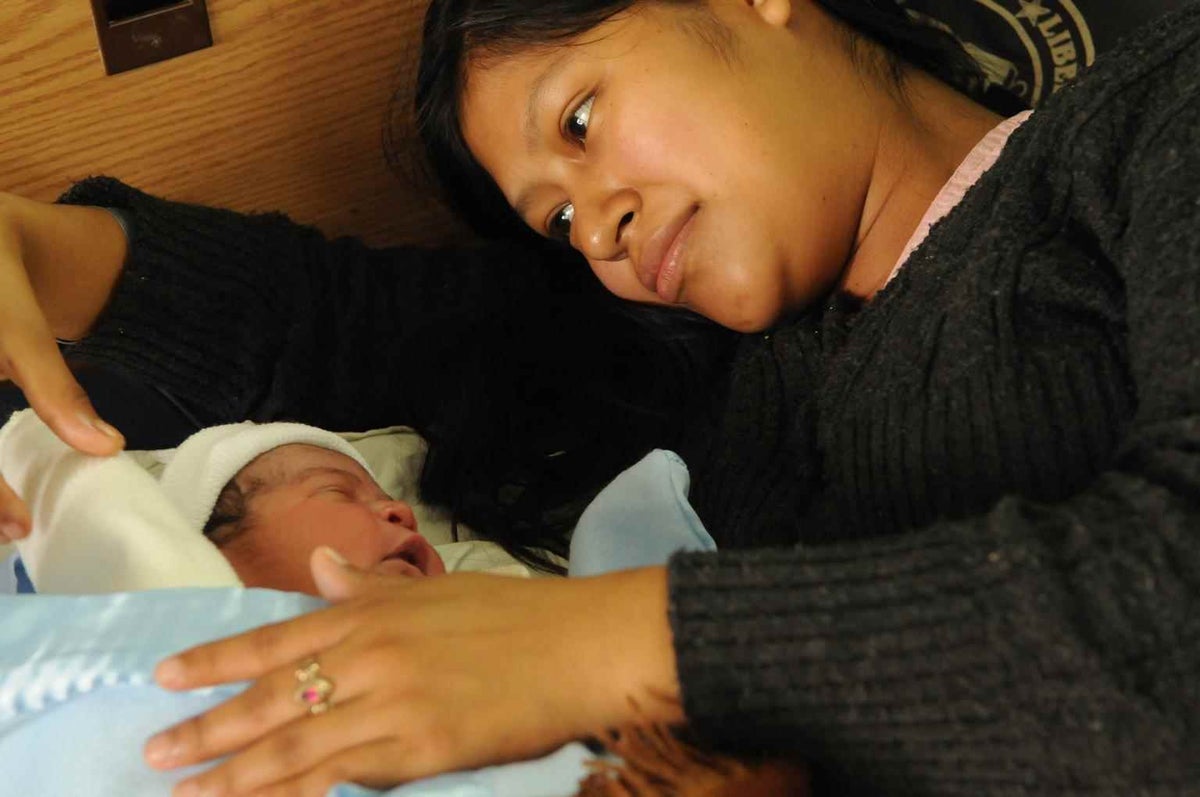
Mary, Vanuatu
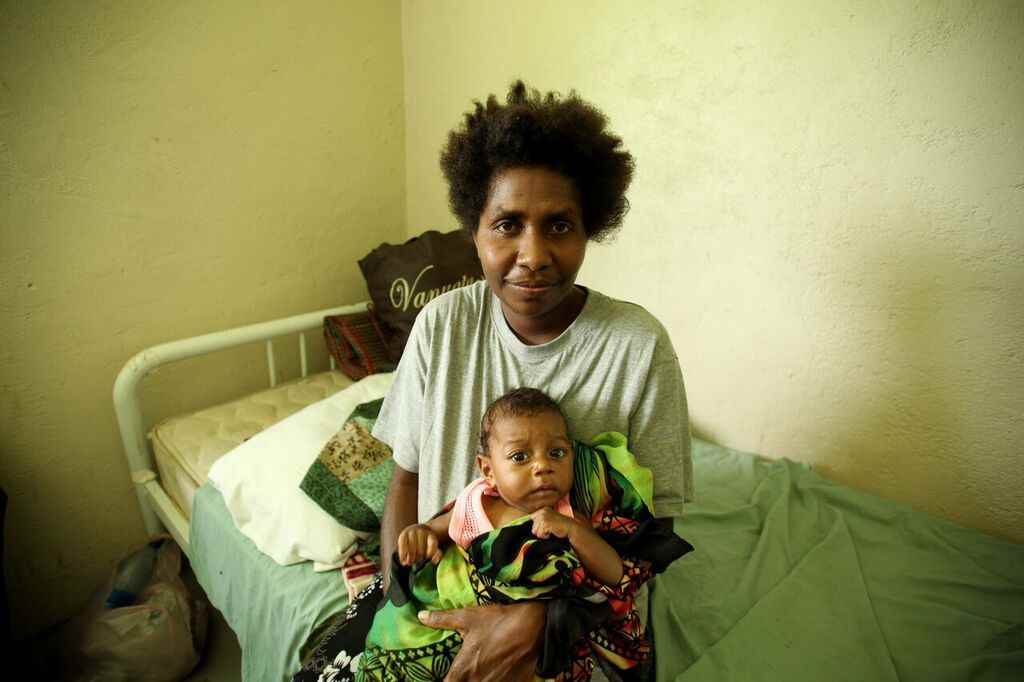
When Cyclone Pam hit, Mary was four months pregnant and all alone with her children. As the Category 5 storm tore through Tanna, Vanuatu, Mary protected her four children by herself.
Months later, the area is struggling again due to the impacts of El Nino induced drought. “The old folks say this dry season is worse than anything they have ever seen before,” said Mary.
Sick for months, Mary has had trouble producing enough breast milk and her daughter Stephanie was found acutely malnourished. Both mother and child received support to help bring them back to health.
Rita, Indonesia
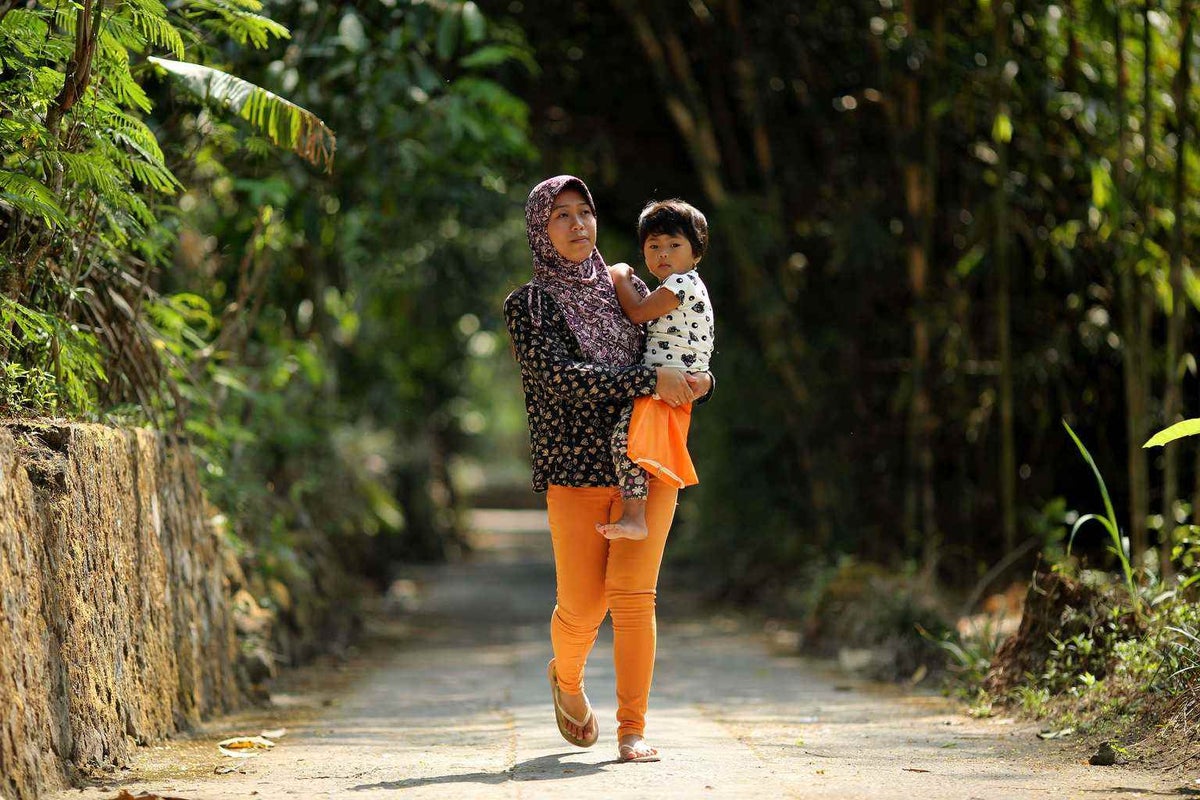
Gihan, Iraq
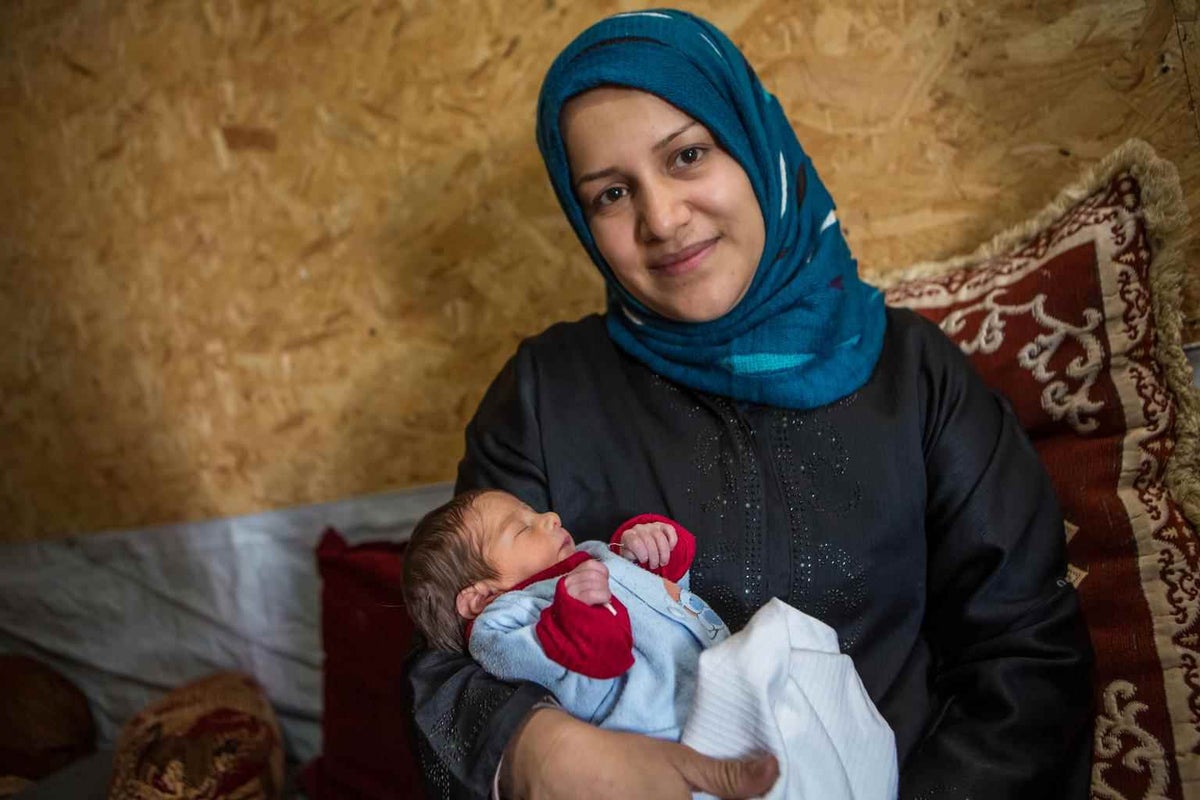
Aisha, Ethiopia
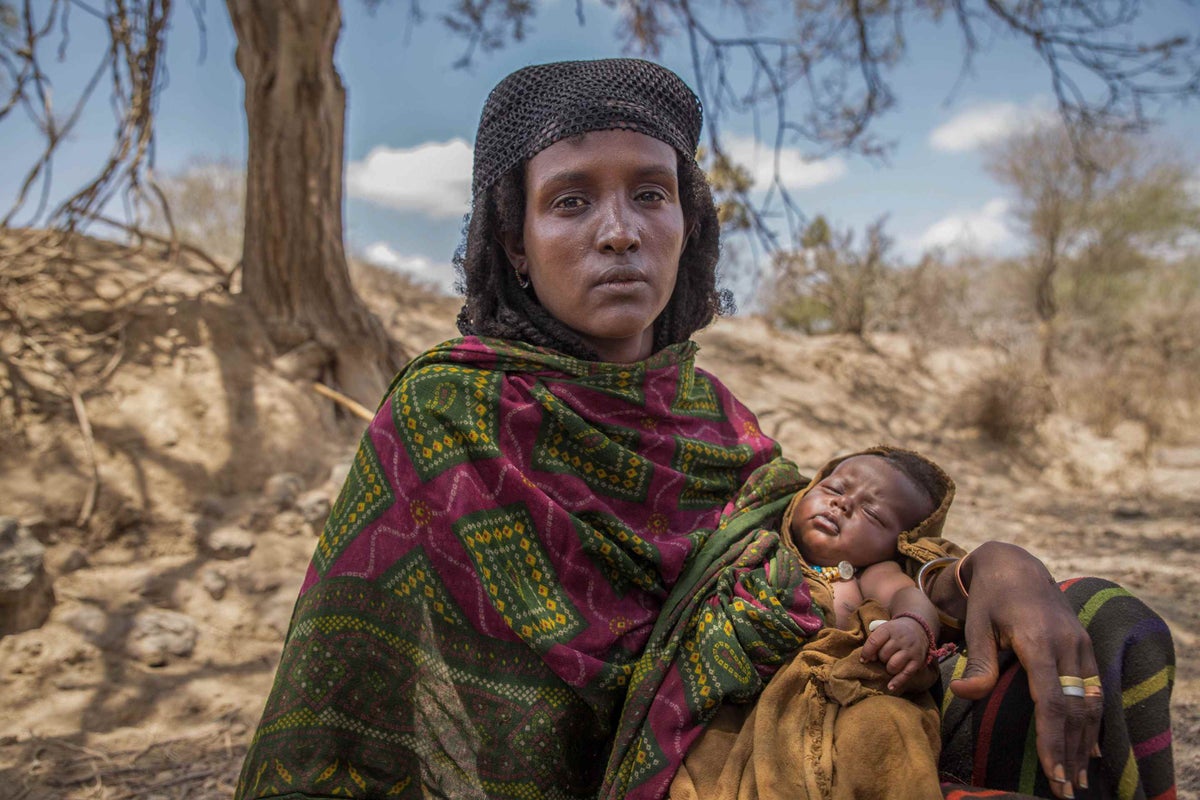
Aisha holds her third child Udma in Ethiopia in 2016. Aisha gave birth inside her home with the assistance of a traditional midwife.
Kolora, Fiji
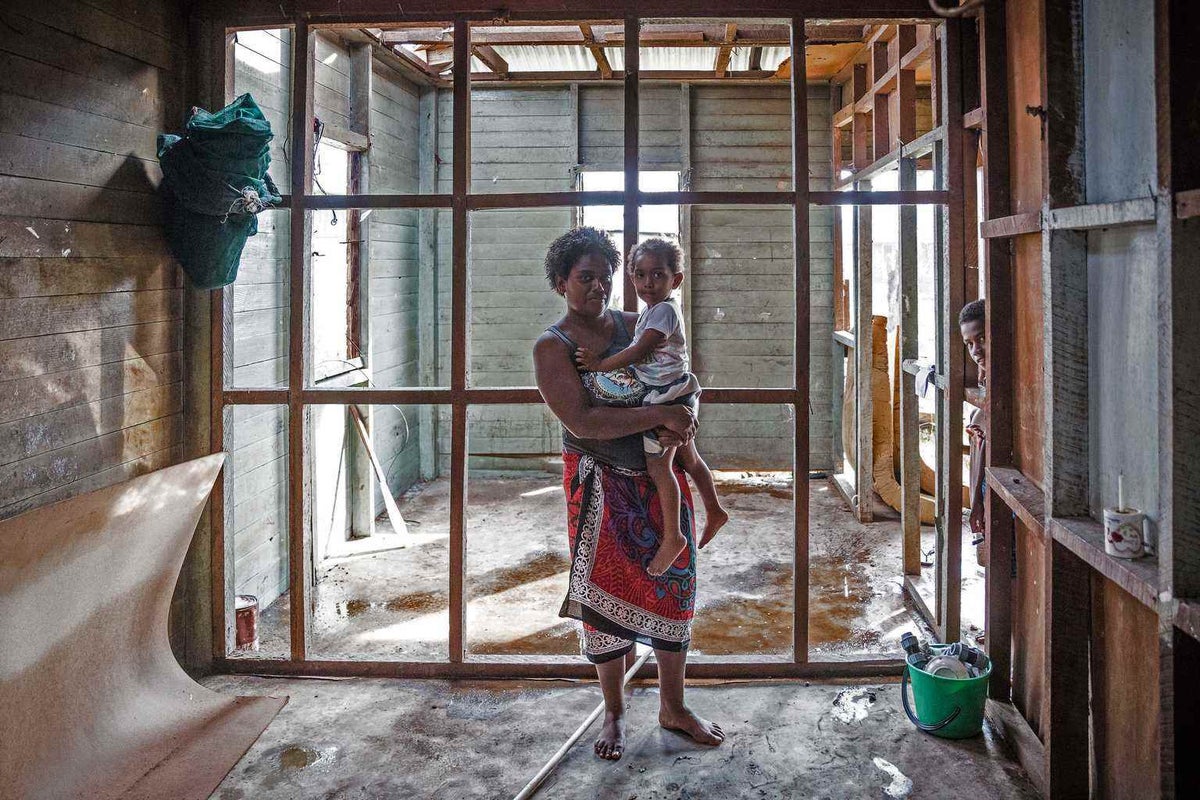
Amira, Germany
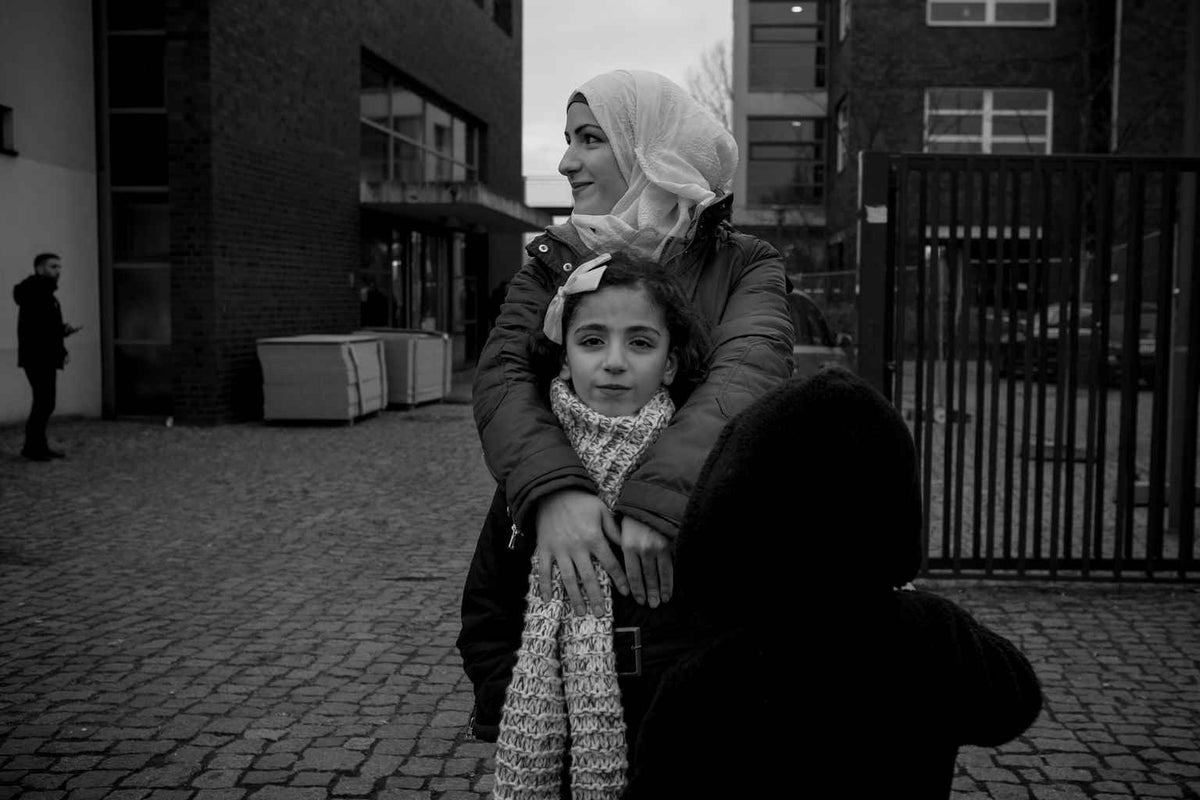
Amira and her family are refugees from Homs, Syria. In 2015, they made the weeks-long journey from Turkey by land and sea to Germany where they filed for asylum.
Despite the hardship and violence, they’ve faced, Amira and her husband, Khalid, are careful to stay strong and positive for their children.
“The scariest part was the water crossing. We managed to put all three kids to sleep before the boat left, and used our bodies as shields between them and the sea so they couldn’t see the water… We had to master our emotions, so we didn’t transmit our fear to the kids.”
Amira has big dreams for the future of her family - and plans to work hard to make them come true. “We’re very determined - all of us - to go to school and master German. Twenty years from now, I hope that people around the world will talk about our family and the challenges that we faced and the successes we achieved.”
Macedonia
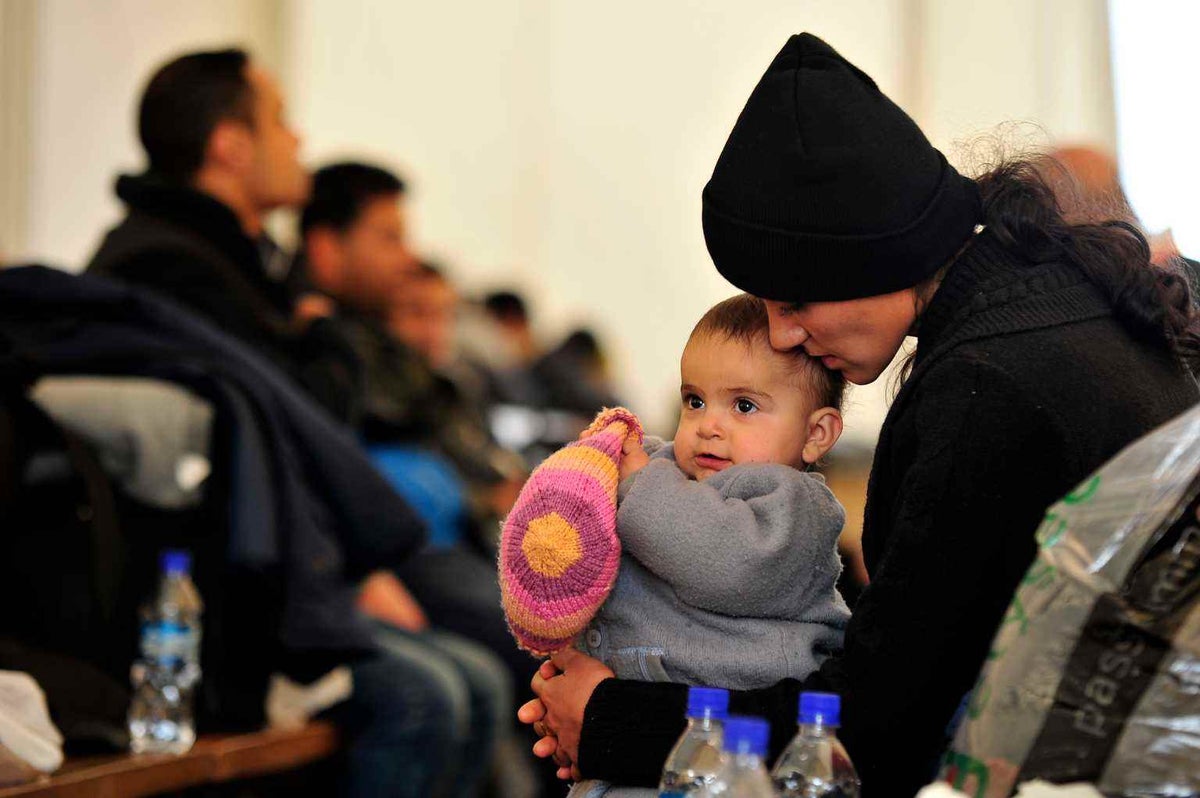
Zahra, Austria
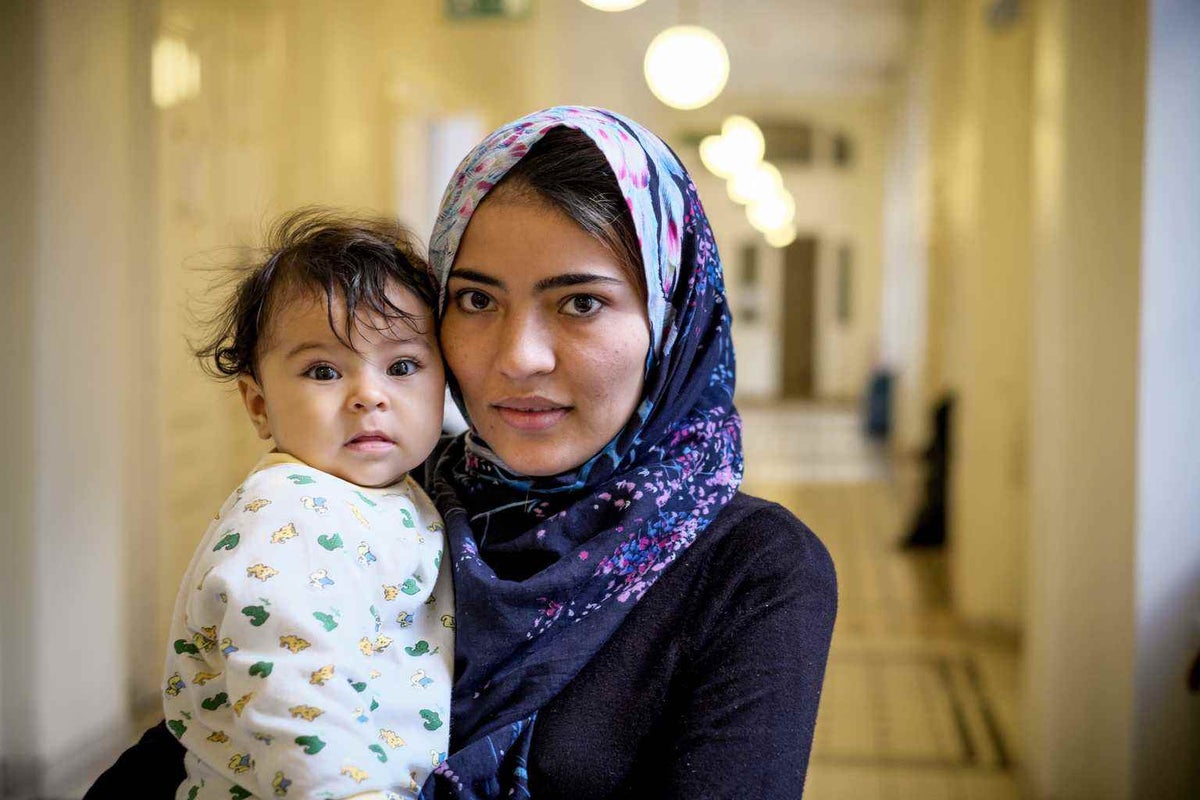
Bassariyah, Niger
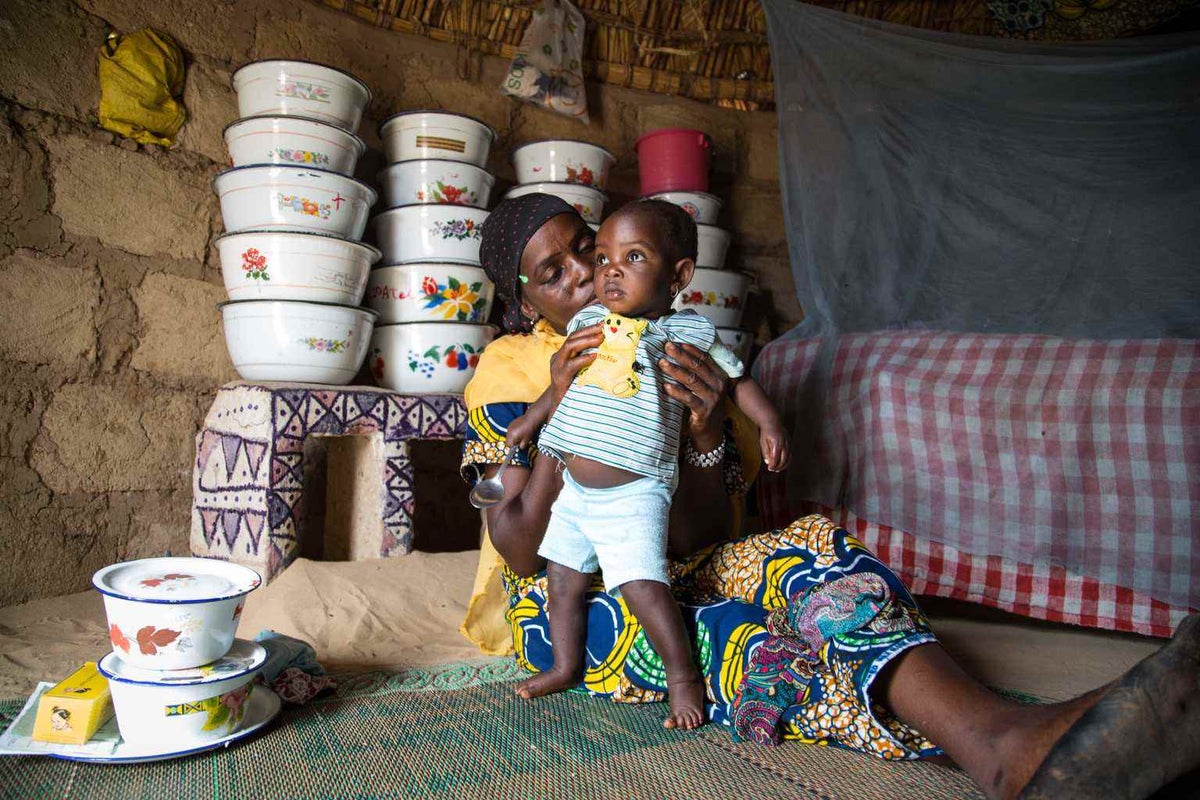
Bassariyah Nassirou at her home with her daughter Zoula. After her daughter developed malnutrition, Bassariyah became involved in a UNICEF malnutrition prevention program. “I like this program. My child is healthy, and this is good for her growth. She never has diarrhoea or fever; she grows up really well and this encourages other mothers around to do the same.”
You can give children like Zoula the nutrients they need to recover from malnutrition by buying an Inspired Gift of therapeutic milk or therapeutic food.
Rupa, Nepal
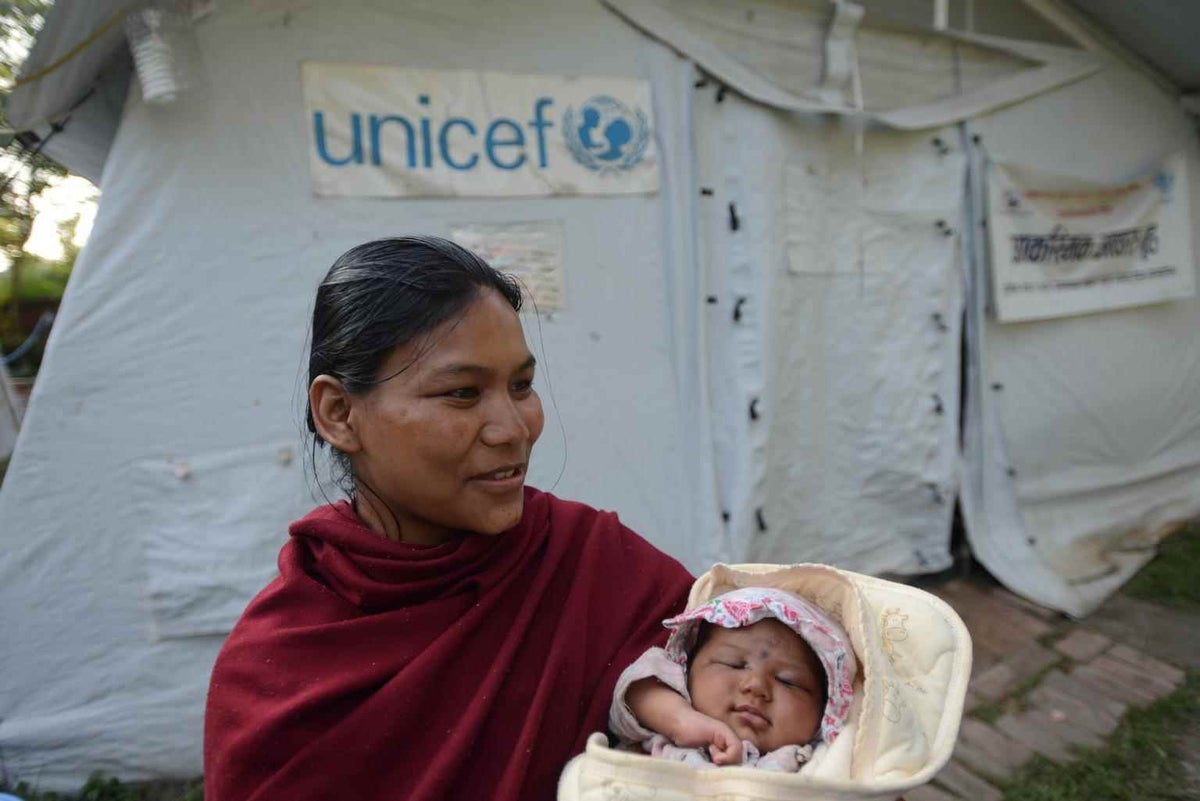
Fanta, Sierra Leone
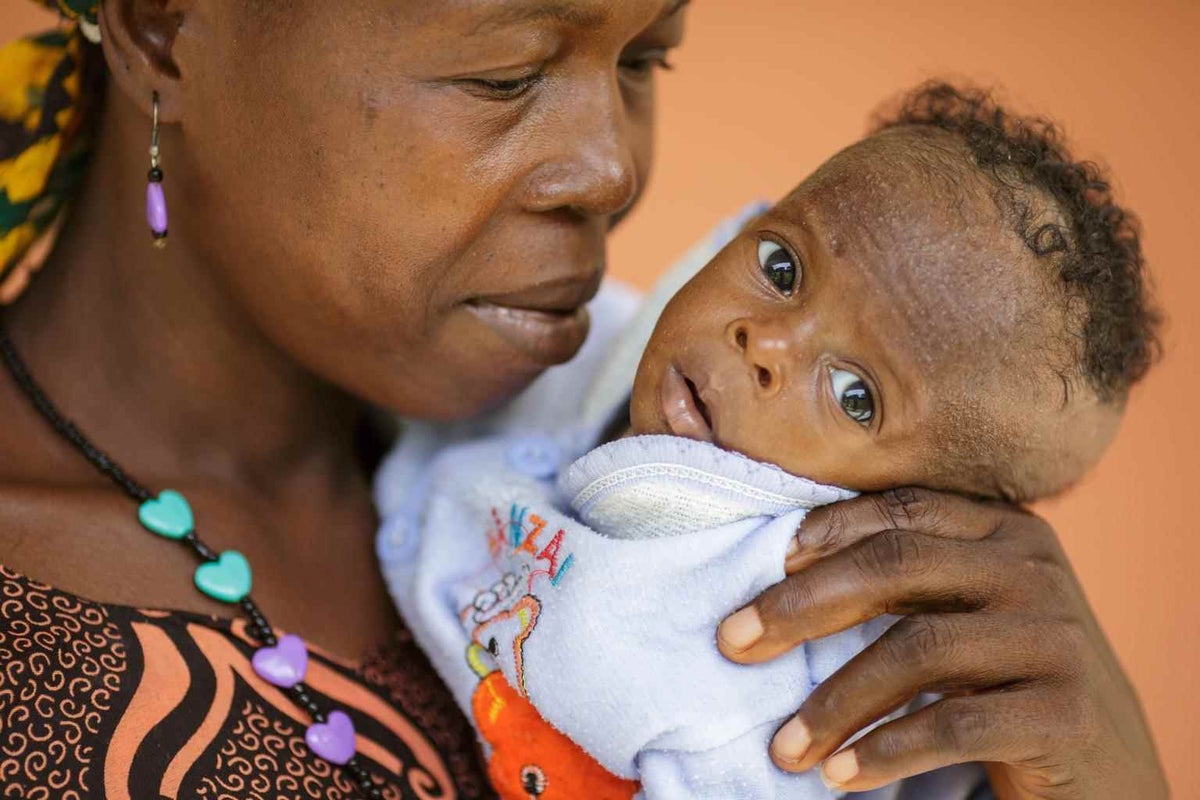
Moumuda, Mauritania
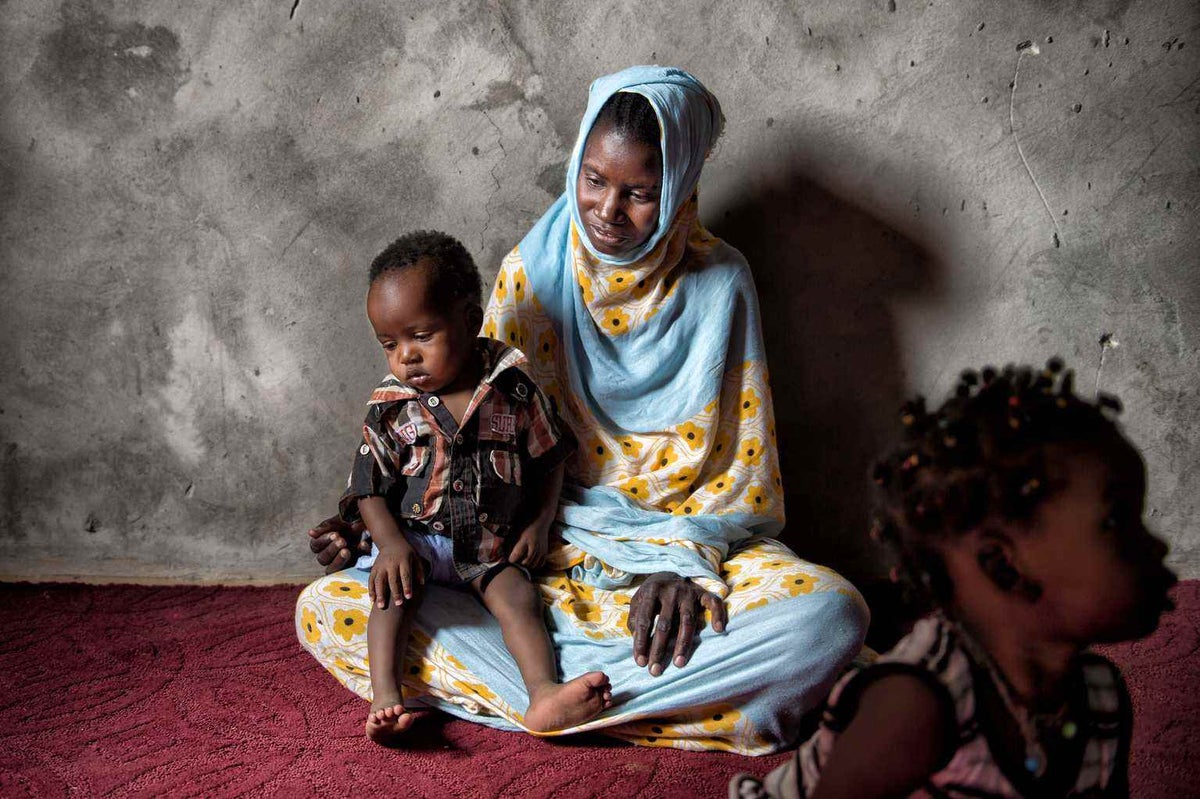
Moumuda and her children attend a session with a nutrition community worker in Mauritania in 2015. Moumuda’s daughter has fully recovered from severe acute malnutrition and now regularly attends follow up nutrition sessions.
South Sudan
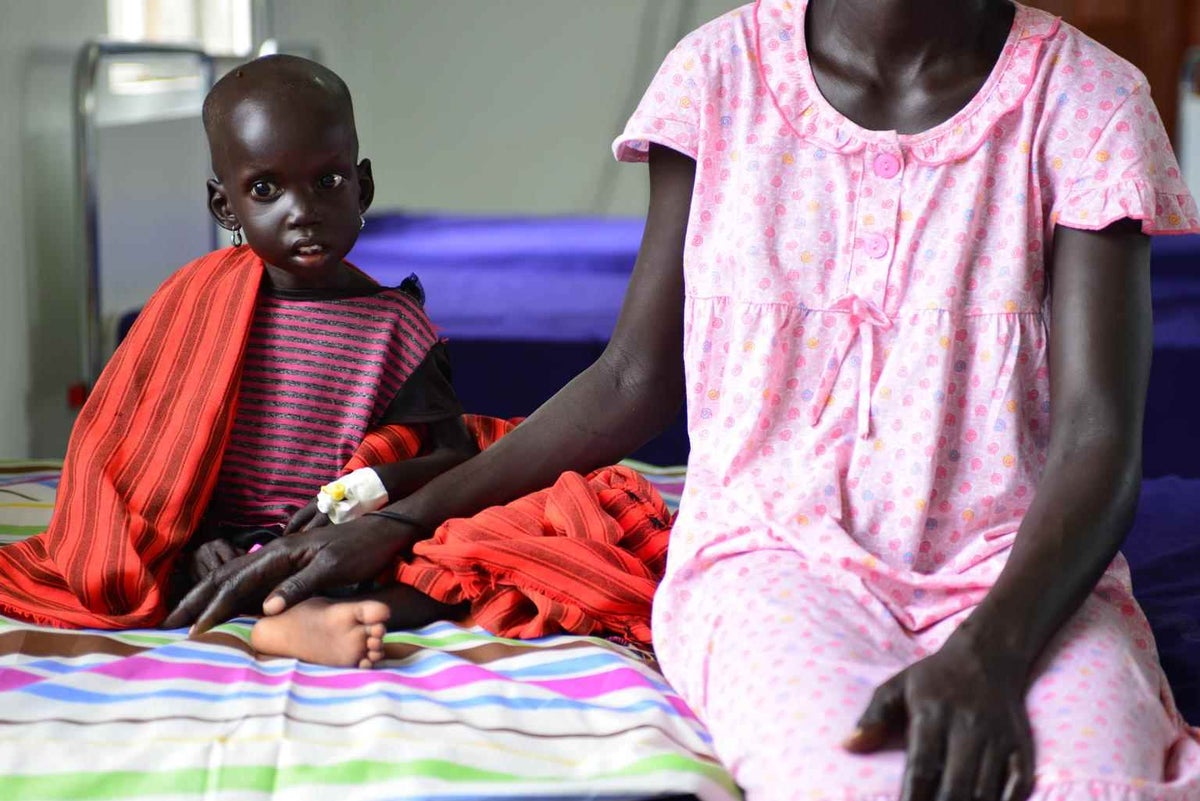
After Nyabol’s home was destroyed by conflict, she fled the fighting with her daughter Nyanmot. “I travelled here by boat with my husband’s brother. My three other children stayed with my husband in Walyar in Unity State."
Nyanmot was treated at the Al-Shabbah Children’s Hospital for malnutrition, receiving therapeutic milk every two hours as well as antibiotics to treat diarrhoea and vomiting.
Fatime, Greece
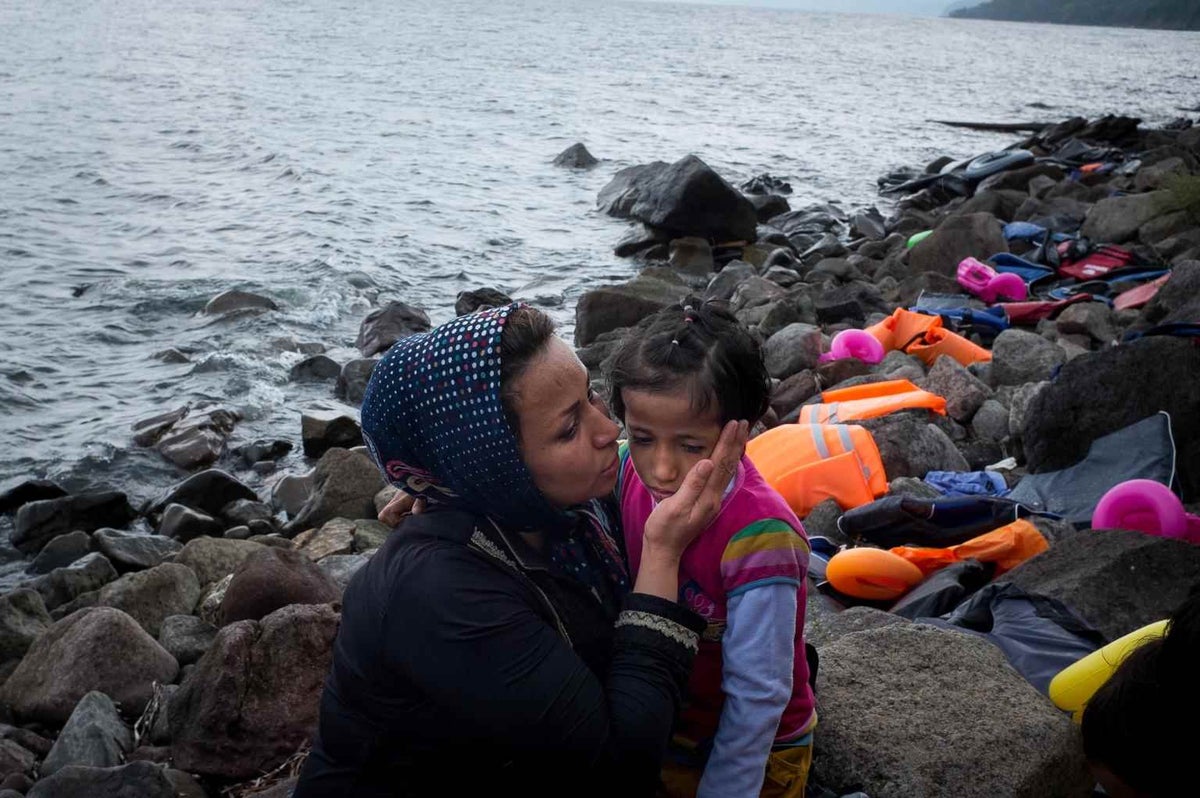
Bangladesh
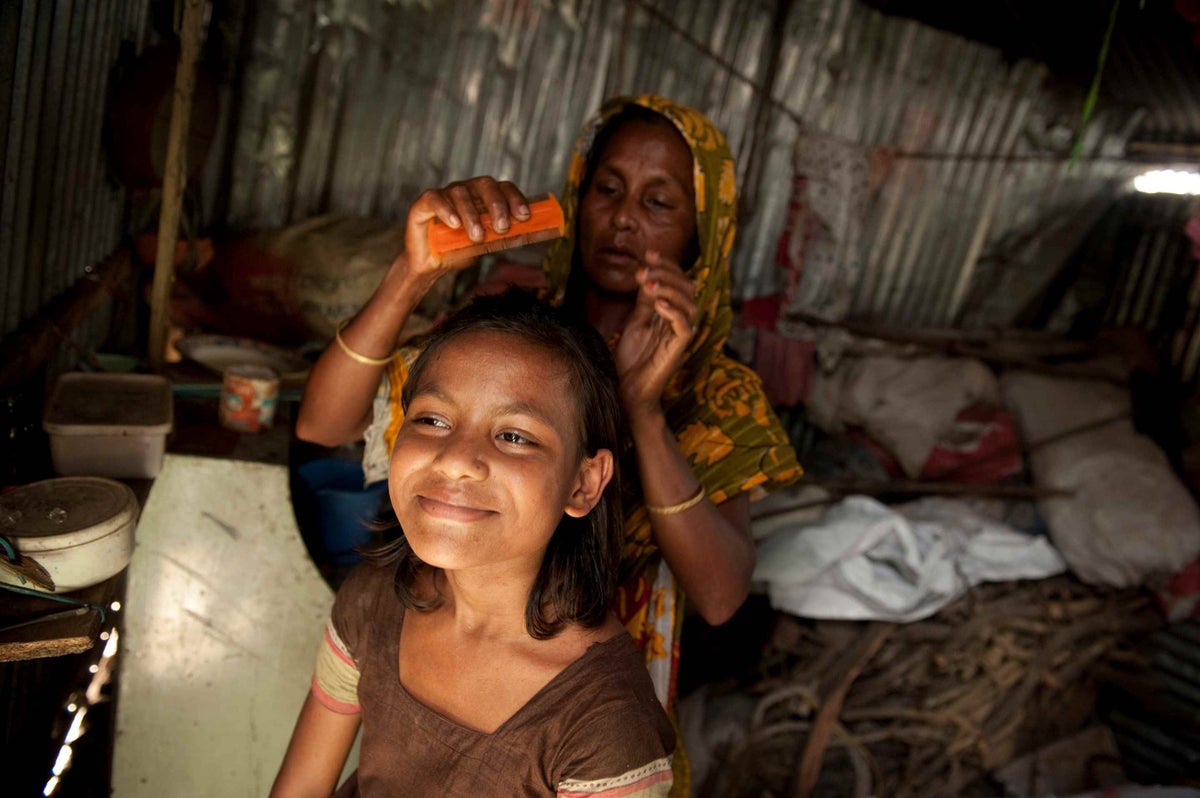
Dada, Democratic Republic of the Congo
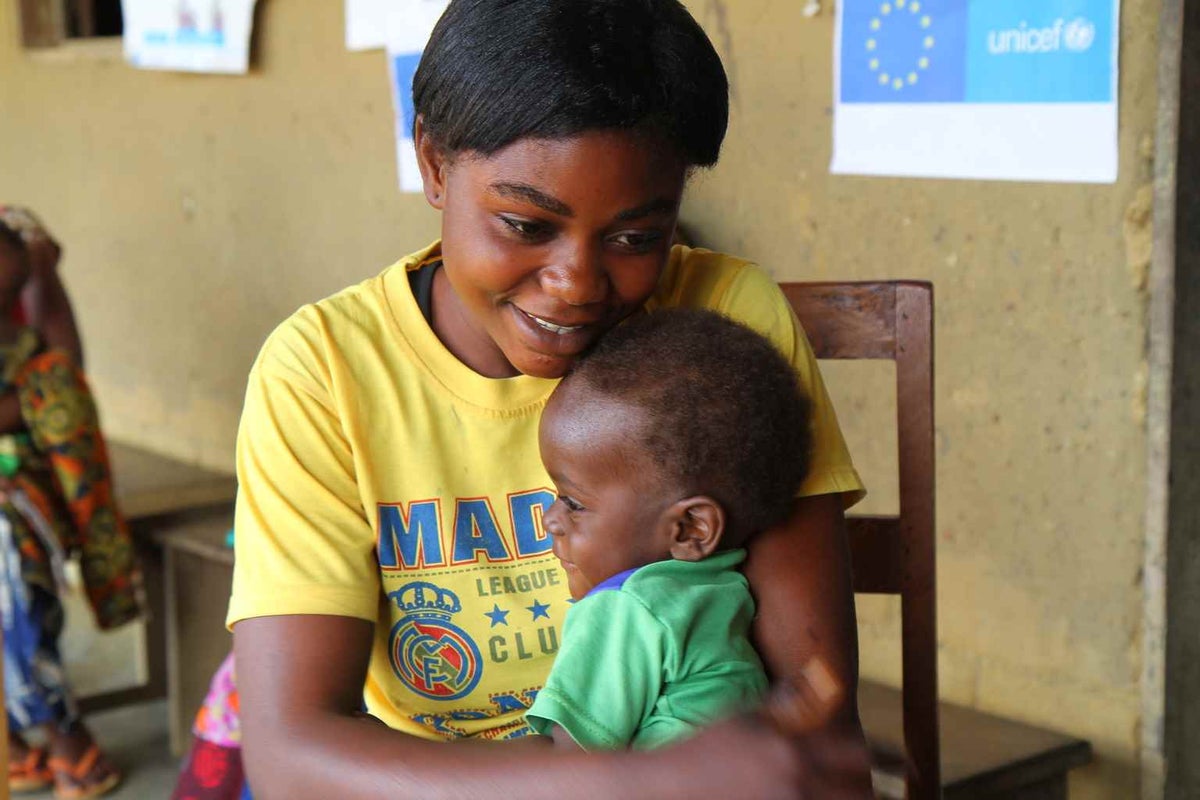
Related articles
Stay up-to-date on UNICEF's work in Australia and around the world



